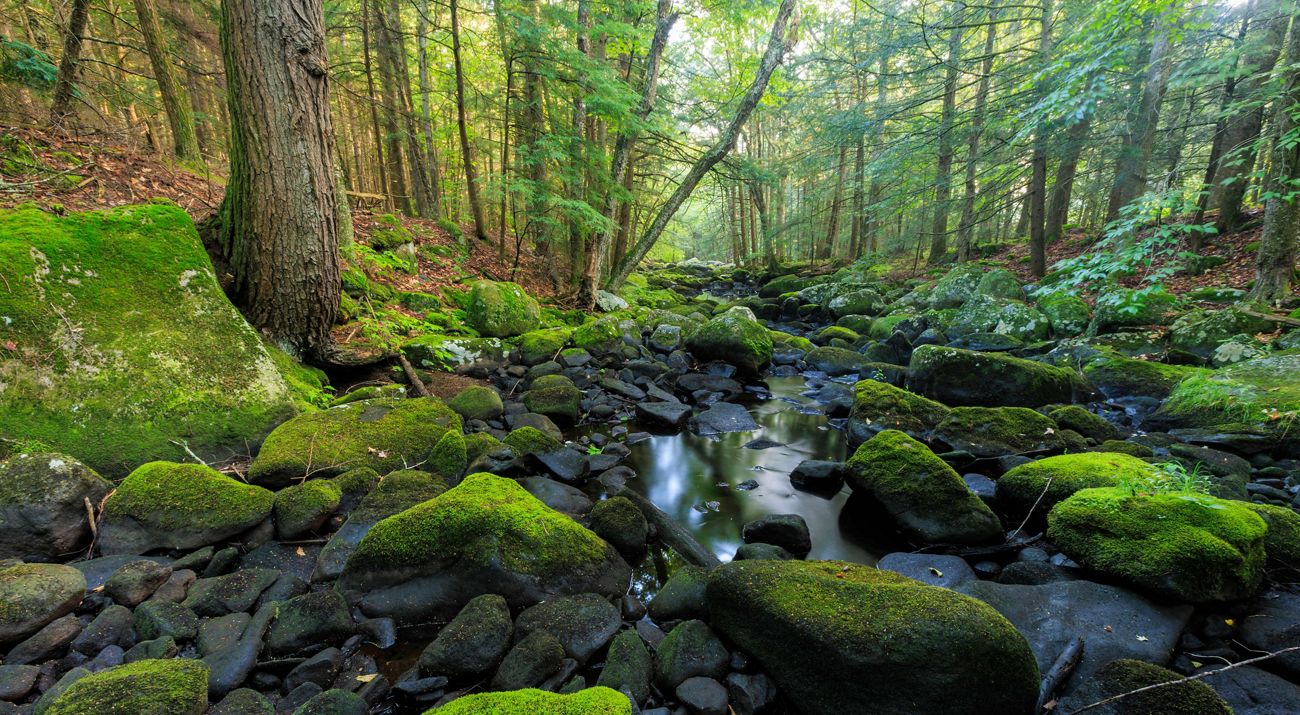
- Phone: 617-532-8300
- Email: massachusetts@tnc.org
-
Follow
Welcome to The Nature Conservancy in Massachusetts blog, your inside look at our efforts to tackle climate change, ensure a healthy ocean and coasts, and protect our land and freshwater across the state. We’ll share stories from the field, at the State House, behind-the-scenes and more, highlighting our latest projects and progress.
- Switch to:
- Conservation
- Policy and Advocacy
- Stewardship
- Our People

November 2025
Bringing Wild Oysters Back to Massachusetts
For centuries, oysters were harvested along our coast, but many of the shells never made it back into the water. Oyster larvae rely on shell surfaces to attach and grow—they won’t survive on their own. Over the last 150 years, wild oyster populations have declined by about 80-90%, due to overharvesting, disease, pollution and climate change.
Oysters are a foundational species in estuaries. The reefs they form provide many benefits: habitat for fish, water filtration and sediment stabilization. A single oyster can filter up to 50 gallons of water a day, improving water quality by removing excess nutrients and pollutants. Healthy reefs also support local communities through shoreline protection and wild oyster harvest opportunities.
To restore these vibrant coastal ecosystems, The Nature Conservancy is partnering with the Town of Mashpee and the Massachusetts Division of Marine Fisheries to build an oyster reef in Hamblin Pond, part of Waquoit Bay. In November, Coastal Project Manager Dan Goulart joined partners in Mashpee to begin the first phase of the project.
About 135 cubic yards of surf clam shells, purchased from a local fisheries company, were placed in rows in a half-acre section of the pond. These shells form the foundation for a new reef, giving oyster larvae a place to settle and grow. In the spring each year after, 100,000–200,000 live single oysters and spat-on shell purchased from local aquaculture farmers will be added. The hope is that the adult oysters will release millions of larvae, helping the reef take hold and expand.
This project, funded by the USDA’s Natural Resources Conservation Service, is part of a statewide initiative to restore critical coastal habitats. TNC and partners are identifying historic oyster sites, as well as salt marsh and seagrass sites, and scaling up restoration to benefit both nature and people. Read more about it in the Cape Cod Times.

November 2025
Becker Pond Dam Removal: A Win for People and Nature
TNC in Massachusetts, alongside the Massachusetts Division of Ecological Restoration (DER), recently kicked off the removal of the Becker Pond Dam in Mount Washington, Massachusetts.
Located within TNC’s 1,500-acre Mount Plantain Preserve—a vital part of the Berkshire Wildlife Linkage and an important piece of the Appalachian landscape’s wildlife corridor—this nearly 100-year-old dam has become a focal point in our stewardship efforts. We are working to enhance the landscape and create a new trail, but a 2016 inspection revealed structural deficiencies with the 95-foot-long dam that needed attention.
The dam’s removal marks a major milestone in restoring the headwaters of Sage’s Ravine, a headwater stream that provides habitat for brook trout and flows into the Schenob Brook in Sheffield, Massachusetts.
“Healthy rivers are the foundation of thriving ecosystems and vibrant communities,” says Kris Sarri, Massachusetts state director. “Removing this dam reconnects the river and reduces flooding risks—creating healthier habitats and communities for generations to come.”
Once the dam is fully removed, a new walking trail will be constructed nearby to provide additional recreational access. Read more about the dam removal in this iBerkshires article or watch the webinar recording to hear from Karen Lombard and DER’s Chris Hirsch as they share insights on the ecological benefits, safety improvements and collaborative efforts behind this project.
This project was funded by DER, the Massachusetts Environmental Trust and two foundations.
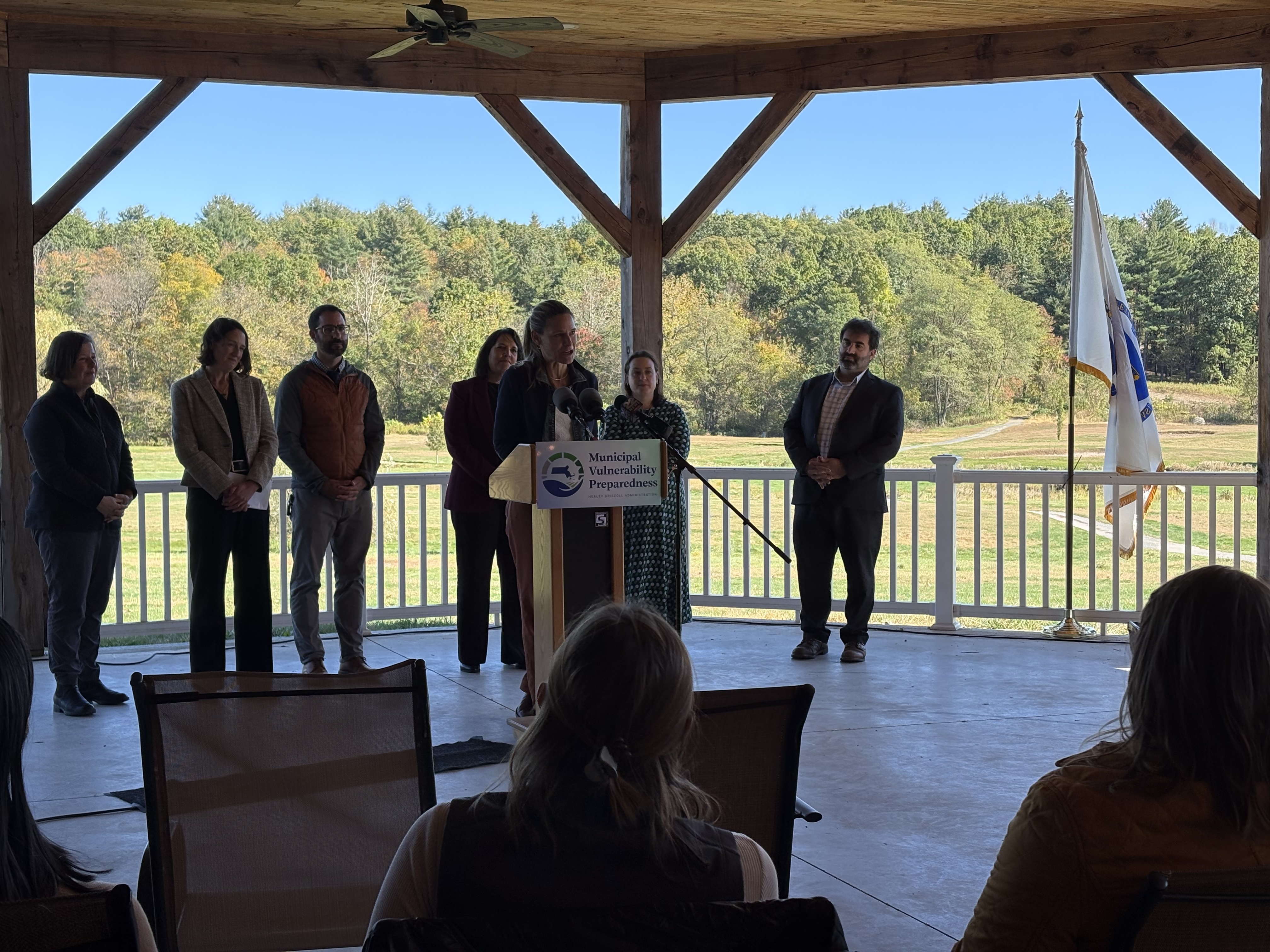
October 2025
Celebrating Community-Driven Climate Resilience
In October, The Nature Conservancy joined partners from across the Commonwealth to celebrate the success and growth of the Municipal Vulnerability Preparedness (MVP) Program—Massachusetts’ flagship initiative for climate resilience. Since the Executive Office of Energy and Environmental Affairs (EEA) launched the MVP Program in 2017, it has empowered cities, towns and Tribes to implement locally-driven strategies to address the impacts of climate change.
TNC played a foundational role in shaping the MVP Program, ensuring that nature-based solutions were central to its design. From the beginning, TNC’s Community Resilience Building framework has helped hundreds of communities identify vulnerabilities and integrate natural infrastructure into their planning. “MVP brings nature and community voices to the forefront of resilience planning,” says Climate Adaptation Director Emma Gildesgame.
This year’s celebration was held at Beaver Brook Conservation Area in Williamsburg—a rural community that experienced severe flooding just two years ago. The site served as an important reminder of the urgent need for climate resilience in rural areas, which often face unique challenges like limited infrastructure and fewer resources. The MVP Program helps fill that gap by providing targeted support and funding to assist communities as they prepare for and respond to climate impacts.
To date, the MVP Program has funded over 500 projects across Massachusetts—from stormwater system upgrades and cooling shelters to green infrastructure and updated zoning. In September, EEA awarded 54 new grants totaling nearly $30 million to support communities and Tribes preparing for flooding, heat waves and wildfires.
The October celebration featured a speaking program and site tour, showcasing MVP-funded projects and the partnerships that make them possible. TNC remains committed to supporting the MVP Program and advancing nature-based solutions that protect people and nature. As climate impacts intensify, programs like this demonstrate the power of collaboration, local leadership and innovative planning to create a more resilient future for Massachusetts.
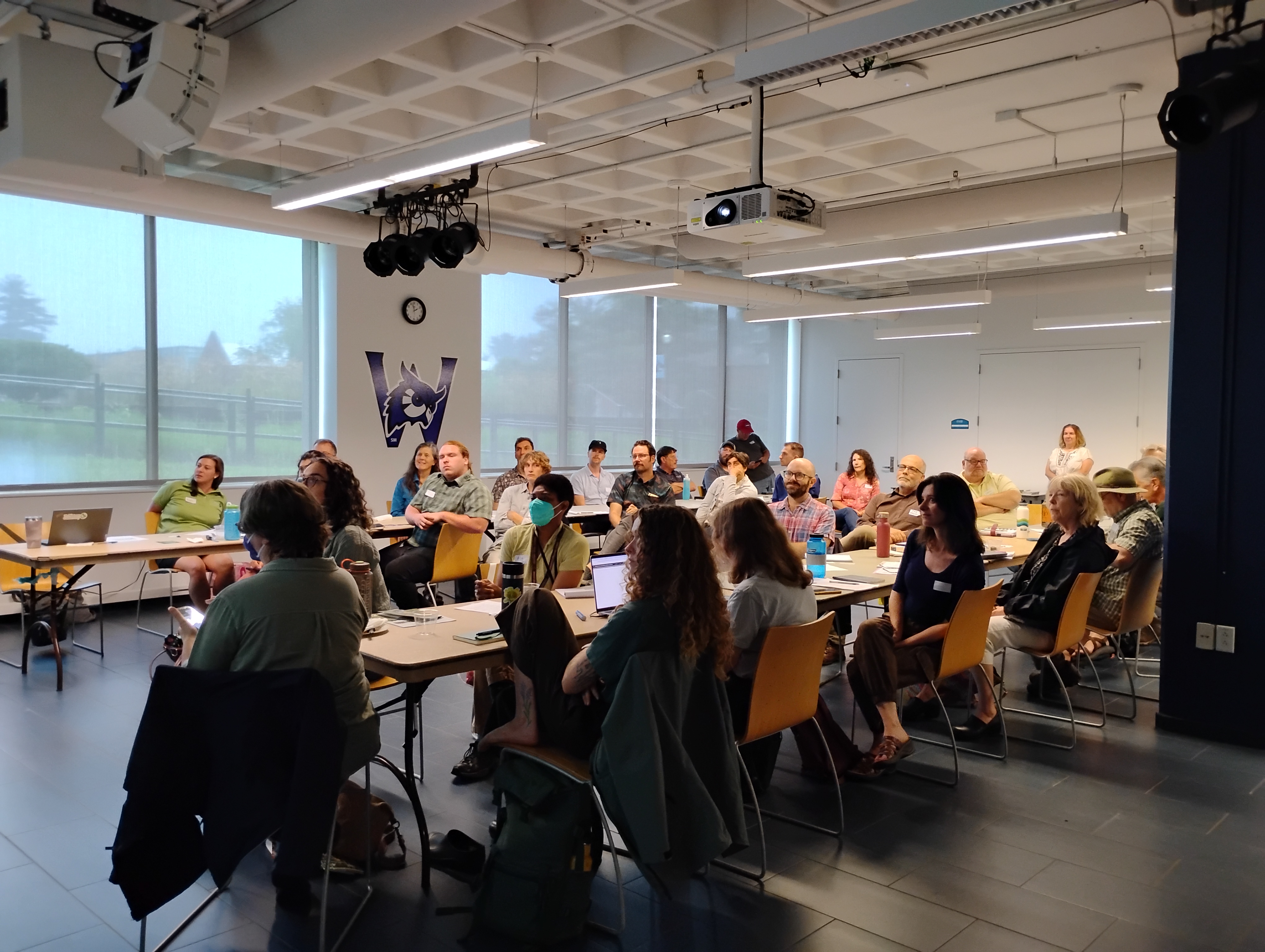
August 2025
Innovation at the Berkshire Wildlife Linkage Meeting
The latest Berkshire Wildlife Linkage meeting this July brought together 45 participants from all four states through which the linkage runs, highlighting the power of regional collaboration in conservation. Several staff from TNC were there in person, contributing to a day focused on sharing updates, strengthening community ties and exploring innovative tools that support wildlife connectivity across the region.
One of the most exciting previews came from Nathaniel Rindlaub of TNC in California, who introduced Animl—a machine learning tool designed to automate the analysis of wildlife camera images. Unlike traditional AI, Animl is trained to distinguish animals from non-animals with impressive accuracy. This streamlines image processing and frees up valuable time for field teams, potentially transforming how we monitor and protect wildlife across the region.
The meeting also highlighted a promising intersection of land protection and transportation infrastructure—the Blandford Cross-Pike Nature Connector. TNC recently closed on this 578-acre property in Blandford, Massachusetts, which links nearly 40,000 acres of permanently protected land north and south of the MassPike. In partnership with the Massachusetts Department of Transportation, TNC will study two culverts on the site, with plans to install wildlife cameras—the photos from which may be processed using Animl. This collaboration represents a unique opportunity to combine land conservation with infrastructure planning, enhancing safe passage for wildlife while strengthening ecological resilience.
From cutting-edge technology to boots-on-the-ground stewardship, the Berkshire Wildlife Linkage continues to be a model for collaborative conservation. The energy and ideas exchanged at this meeting reaffirm the value of working together across state lines to protect critical habitats and ensure wildlife can move freely through the landscape.
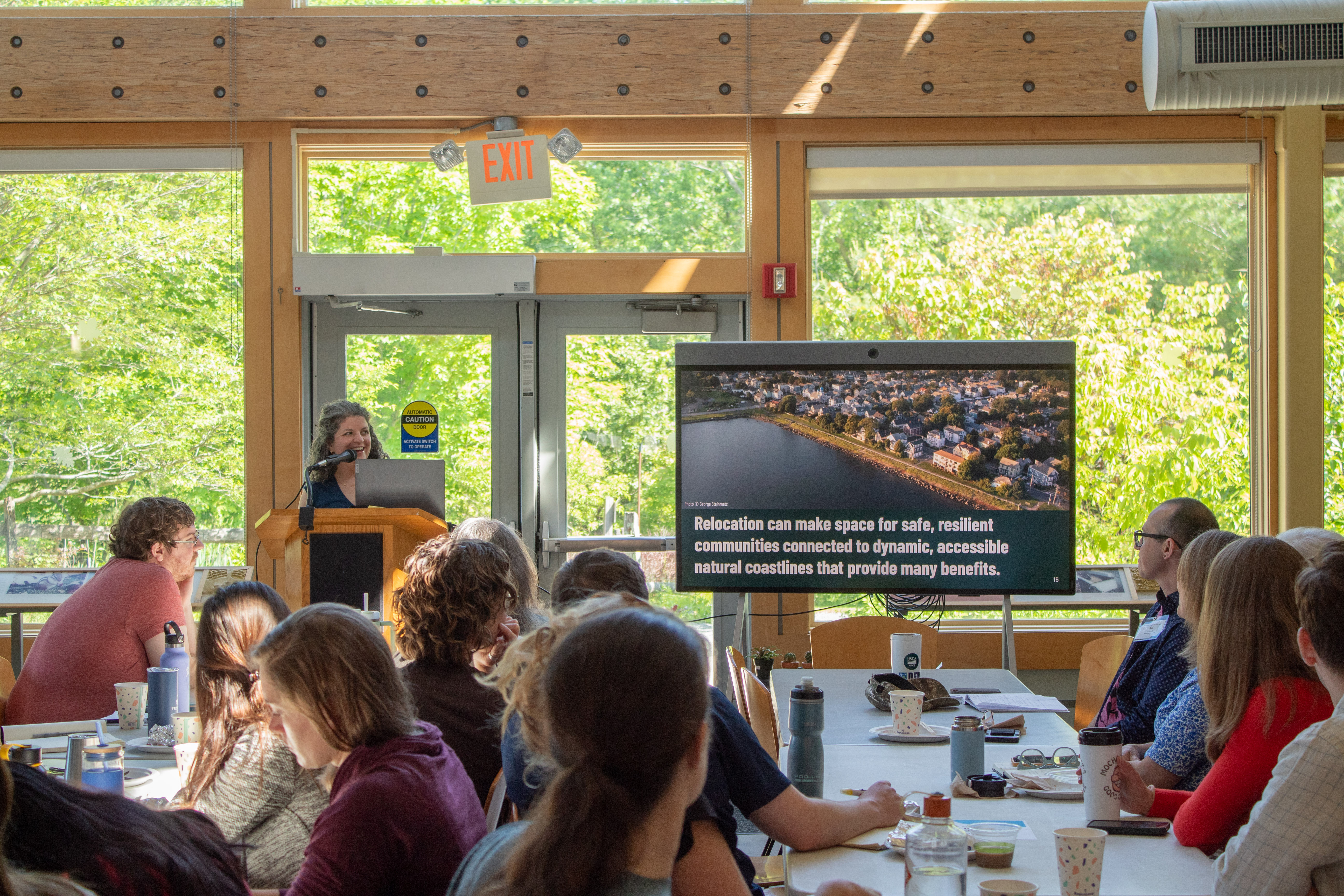
June 2025
Celebrating the First Annual Coastal Relocation Workshop
In early June, more than 70 professionals from across Massachusetts gathered at Mass Audubon’s Boston Nature Center for a milestone event: the first annual Massachusetts Coastal Relocation Workshop. This inspiring day brought together voices from municipalities, nonprofits, universities and state agencies to explore how we can proactively plan for coastal relocation in the face of climate change.
As sea levels rise and storms and flooding intensify, some coastal communities are facing difficult decisions about moving away from high-risk areas. These conversations are complex, emotional and deeply tied to people’s sense of place. However, proactive relocation can keep people safer from coastal storms while making space for coastal habitats to expand and adapt to climate impacts, providing further protection for coastal communities and economies. That’s why this workshop—and the growing network behind it—is so important.
What began nearly two years ago as an informal group of people thinking through this challenge—co-convened by The Nature Conservancy’s Emma Gildesgame and UMass Boston’s Kristin Uiterwyk—has evolved into the Proactive Coastal Relocation Network, now with more than 170 members. This network is helping communities across Massachusetts and beyond navigate the challenges of coastal relocation with compassion, creativity and collaboration.
The full-day workshop featured a powerful keynote, “Planning Is a Form of Hoping,” delivered by Carri Hulet from CH Consulting. Participants then broke into small groups to discuss case studies, including efforts on Nantucket, Cape Cod and in towns like Manchester-by-the-Sea. Topics ranged from historic preservation to state legislation and community-led resilience planning. Participants were so deeply involved in their discussions that they even hesitated to switch groups when prompted.
Later in the day, Dani Boudreau from NOAA led an interactive training on risk communication and building trust, helping participants better understand how people perceive risk and how to communicate more effectively with communities.
The day ended with reflections from Emma and Kristin on how we move forward together to build a more resilient future for all coastal residents in Massachusetts. This workshop was the result of a collaborative effort with project team partners from Communities Responding to Extreme Weather; Urban Harbors Institute, UMass Boston; and UMass Center for Agriculture, Food, and the Environment, as well as funding from the Massachusetts Office of Coastal Zone Management.
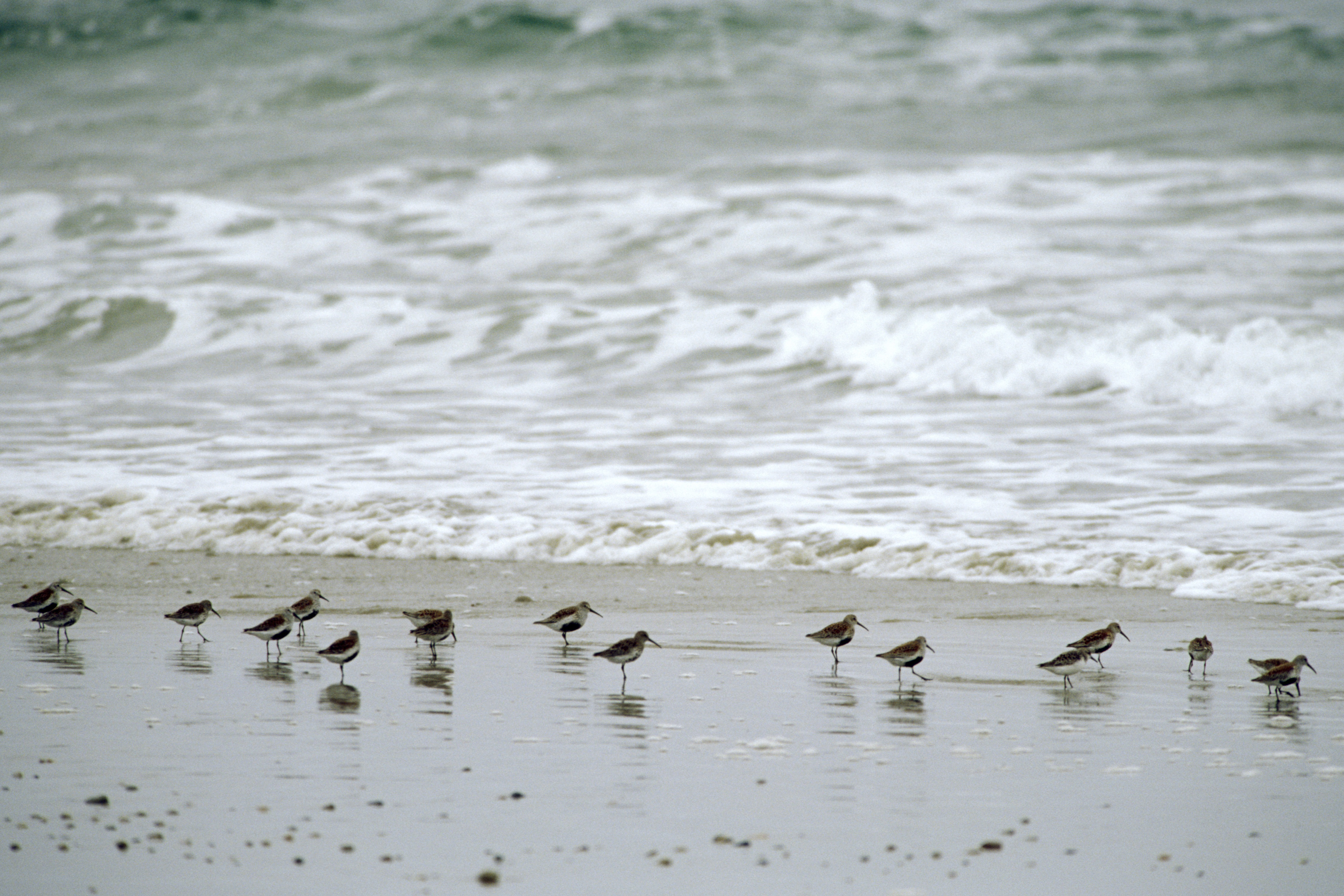
April 2025
Introducing the Updated Marine Mapping Tool
The ocean is a busy place. People use the ocean to ship goods, harvest seafood, generate clean energy and more. Fish, whales, birds and other marine life also rely on the ocean and coast for habitat. To make informed choices about protecting and restoring marine life, decision-makers need to see the connections between species and their habitats both inside and outside of the ocean areas that people use.
The Nature Conservancy’s free Marine Mapping Tool can show where species are in the Atlantic Ocean and how they’re using different areas, information critical for decision-makers looking to improve outcomes for marine life when actions are taken in the ocean. Recent updates allow users to connect marine species to the important habitats they use on the coast by showing a species’ known range and identifying the location of coastal habitats that matter to them throughout their lives, such as saltmarsh and eelgrass. It distinguishes which marine animals and habitats are threatened or vulnerable. It also shows how people are using certain areas of the ocean, such as fishing communities.
Anyone can use the Marine Mapping Tool, which is free and available to the public, but it is intended to help experts choose the most effective ways to protect and restore species and habitats in the marine environment. This includes the developers of offshore wind infrastructure projects, environmental regulators and conservation experts.
Visit the full story to learn more about the Marine Mapping Tool and register for a live workshop to learn how to use the tool.

January 2025
Bringing Back Eelgrass on the East Coast
Eelgrass is a marine plant that grows in the coastal waters of New England and provides many ecosystem services, such as habitat for fish, protection from coastal erosion and carbon sequestration. Unfortunately, eelgrass is declining in Massachusetts and elsewhere in the northeast, threatening the benefits it provides to nature and people. Coastal pollution and climate change are driving eelgrass die-offs, and must be addressed to create the right environment for restored eelgrass to thrive.
To address this crisis, TNC is working with partners across Massachusetts and beyond to restore eelgrass. At TNC’s Virginia Coastal Reserve, scientists have had success with seed-based restoration techniques, in which eelgrass seeds are collected from healthy eelgrass beds and used to restore new beds. And Dr. Randall Hughes, professor of marine and environmental sciences at Northeastern University and a partner with TNC, is conducting research on assisted gene flow of eelgrass seeds. This is the process of moving plants from southern regions to northern areas, as the southern species may be adapted to warmer waters and could help bolster the northern populations against climate change.
TNC in Massachusetts is involved in a number of efforts to address these issues, such as working to address nitrogen pollution from septic systems and other runoff on Cape Cod. Additionally, TNC recently secured a major grant from the U.S. Department of Agriculture’s Natural Resources Conservation Service to create a statewide plan for restoring eelgrass, shellfish habitat and salt marshes. With these initiatives, TNC Massachusetts is part of the effort to restore the eelgrass ecosystems that are vital to people and nature in Massachusetts.
Thanks to Jessica Griffin, coastal sustainability postdoctoral fellow with TNC and Northeastern University, for contributing to this post.
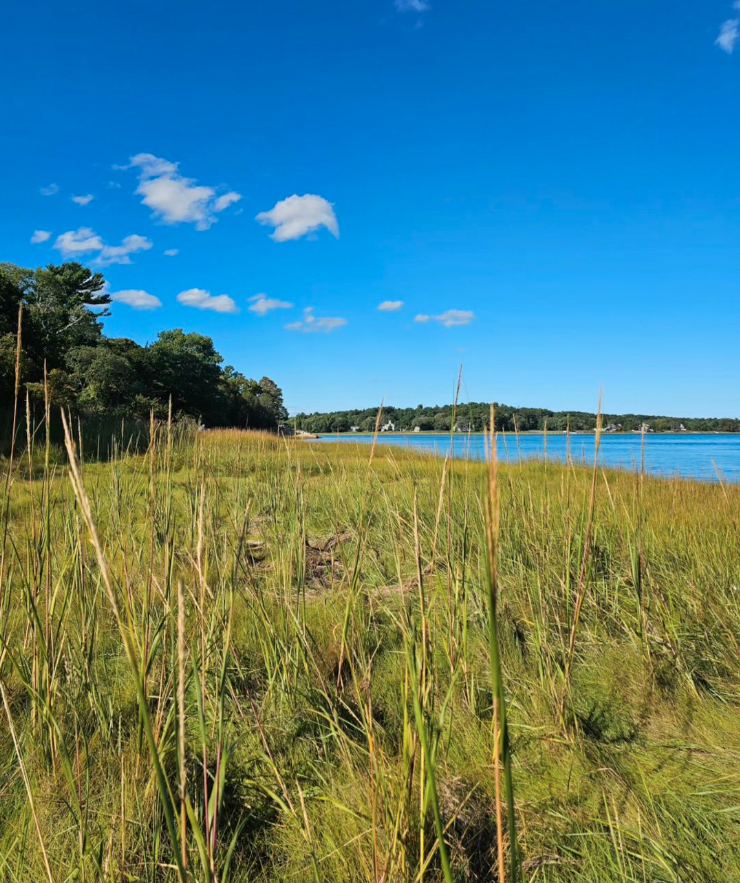
October 2024
Securing the Health and Resilience of Our Coasts
TNC in Massachusetts is celebrating receiving two grants this fall that will support our coastal ecosystems and communities!
The coastal team recently received a five-year award of nearly $600,000 from the U.S. Department of Agriculture’s Natural Resources Conservation Service. The funds will support coastal restoration in partnership with the Massachusetts Division of Marine Fisheries, Cape Cod Conservation District and other partners. The project is focused on shellfish, salt marsh and eelgrass restoration using natural solutions that improve the function of these coastal habitats while supporting farmers, communities and economies.
The Healey-Driscoll Administration and the Office of Coastal Zone Management also recently announced an investment of $5.2 million in coastal community resilience projects across Massachusetts to address climate impacts. TNC, the Urban Harbors Institute at UMass Boston and Communities Responding to Extreme Weather will receive $265,928 to support Massachusetts communities in proactive, equitable planning for relocation away from high flood risk areas. The work includes: (1) launching a coastwide peer learning network, (2) hosting public events to hear and learn from people facing extreme flooding, and (3) developing a database of best practices and resources.
We look forward to carrying out the work this funding makes possible and sharing updates in the future.
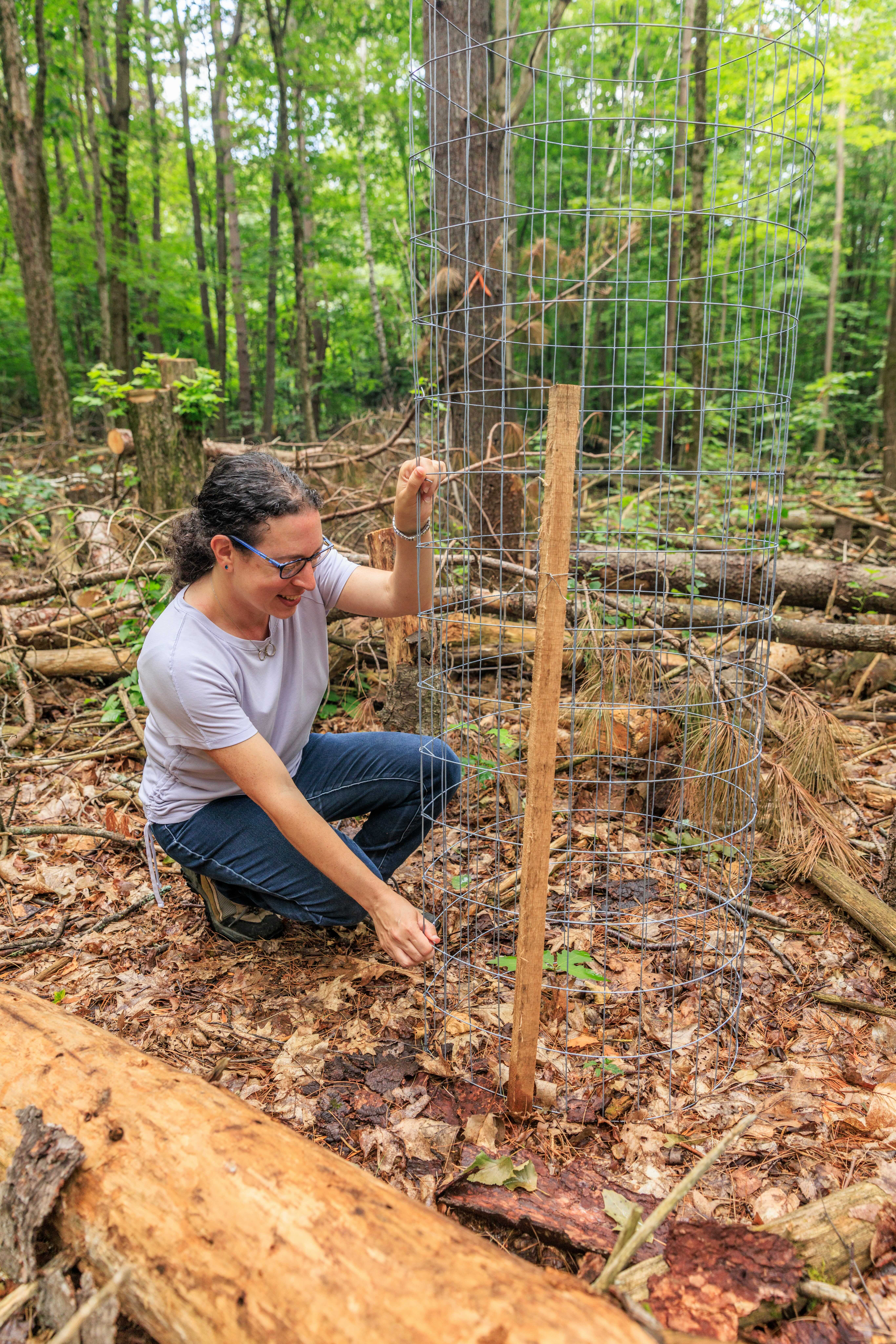
October 2024
Celebrating 100,000 Acres: The Impact of the Family Forest Carbon Program
As of fall 2024, the Family Forest Carbon Program has enrolled 100,000 acres, including 400 acres in Massachusetts belonging to five landowners committed to climate-smart forestry practices on their land for the next 20 years. The program was created by the American Forest Foundation (AFF) and TNC and provides annual payments to enrolled landowners for implementing these climate-smart practices, in addition to providing access to professional foresters for assistance with forest management plans.
The carbon generated by these lands is measured and verified to meet an approved forest carbon accounting methodology. The FFCP then sells the verified carbon credits to companies interested in going beyond what they can do to reduce emissions through their business processes and supply chains. TNC and AFF continue to collaborate closely on promoting the program, as well as climate-smart forestry practices in general, to broad audiences in Massachusetts and other applicable states.
This success was made possible through high-impact partnerships, iterative science and accounting, and the relentless commitment of family forest owners to caring for their lands. We are proud to have supported AFF on their journey to 100,000 and we look forward to more Massachusetts landowners enrolling soon to further this program that brings us closer to our climate mitigation goals.
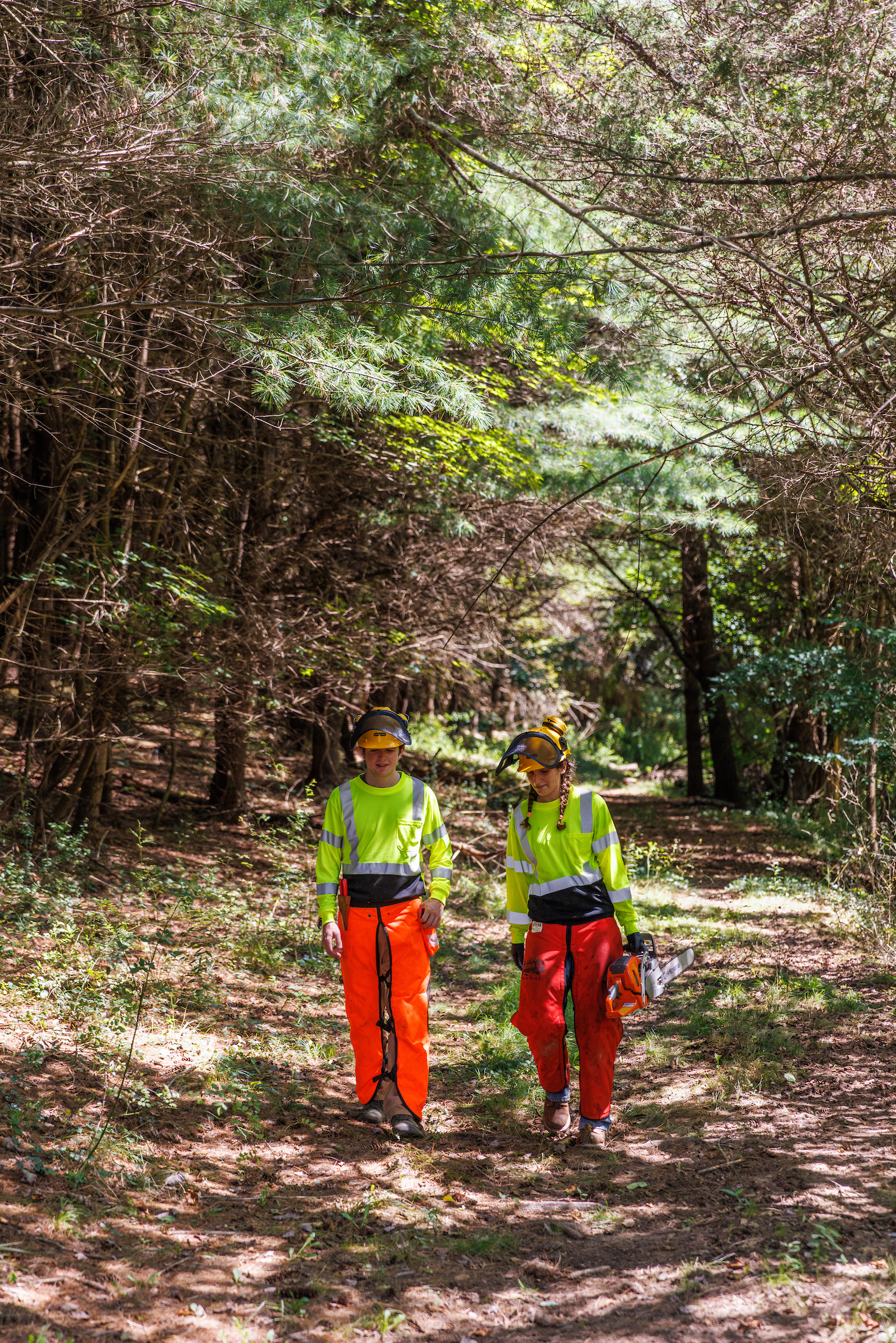
September 2024
Training Future Foresters to Support our Forests
On a hot July afternoon, Miles Plitt and Phoebe Weinberg, two college-age forestry apprentices, and their mentor, forester Otis Wood, are hard at work implementing climate-smart forest management techniques. They apprentices are a part of the NextGen Forest Project, a collaboration between TNC and the Forest Stewards Guild aimed at supporting training and development for the next generation of foresters.
Forest management techniques like removing and treating invasive species and using plastic tree shelters to protect vulnerable hardwood species improve the health of forests and increase the amount of carbon pollution removed from the atmosphere and stored in the forest. It’s essential work, but it has a high skill requirement and a shortage of people to do it.
With funding from TNC, the Guild worked with Long View Forest Management to train three forestry apprentices to protect seedlings from deer browse and remove invasive plants at 10 privately owned forest parcels in Massachusetts and Vermont this summer. From June through August, they treated nearly 40 acres of land.
Now that the pilot summer has wrapped up, the team is discussing how to carry the program forward into the future. Read the Forest Stewards Guild's story on the program for more information.

August 2024
Continued Funding for Community Resilience
In August, the Healey-Driscoll Administration awarded $52 million in action grants for the Municipal Vulnerability Preparedness (MVP) Program—the most funding ever allocated to the program. MVP action grants support priority climate adaptation measures that municipalities identify during the MVP planning process or similar assessment planning.
TNC in Massachusetts is proud to join communities and partners on several of the 71 projects that were awarded grants in this round, including Boston and Revere’s work at Belle Isle Marsh, the Town of Washington’s Depot Brook Flood Resilience project, North Adams’ Flood Resiliency efforts, Mashpee’s Santuit Pond project, and Island End River Flood Resilience in Everett and Chelsea. Many of these efforts to strengthen communities in the face of climate change will use nature or natural systems to address challenges. Stay tuned for further project updates!
TNC helped the Executive Office of Energy and Environmental Affairs launch the MVP initiative in 2017. The model for the program’s community planning workshops is based on a Community Resilience Building framework developed by TNC. Since then, we have supported a number of projects that have received MVP grants and, in a few cases, provided matching funds for municipalities’ action grants. Read more about the MVP program and TNC for more information.
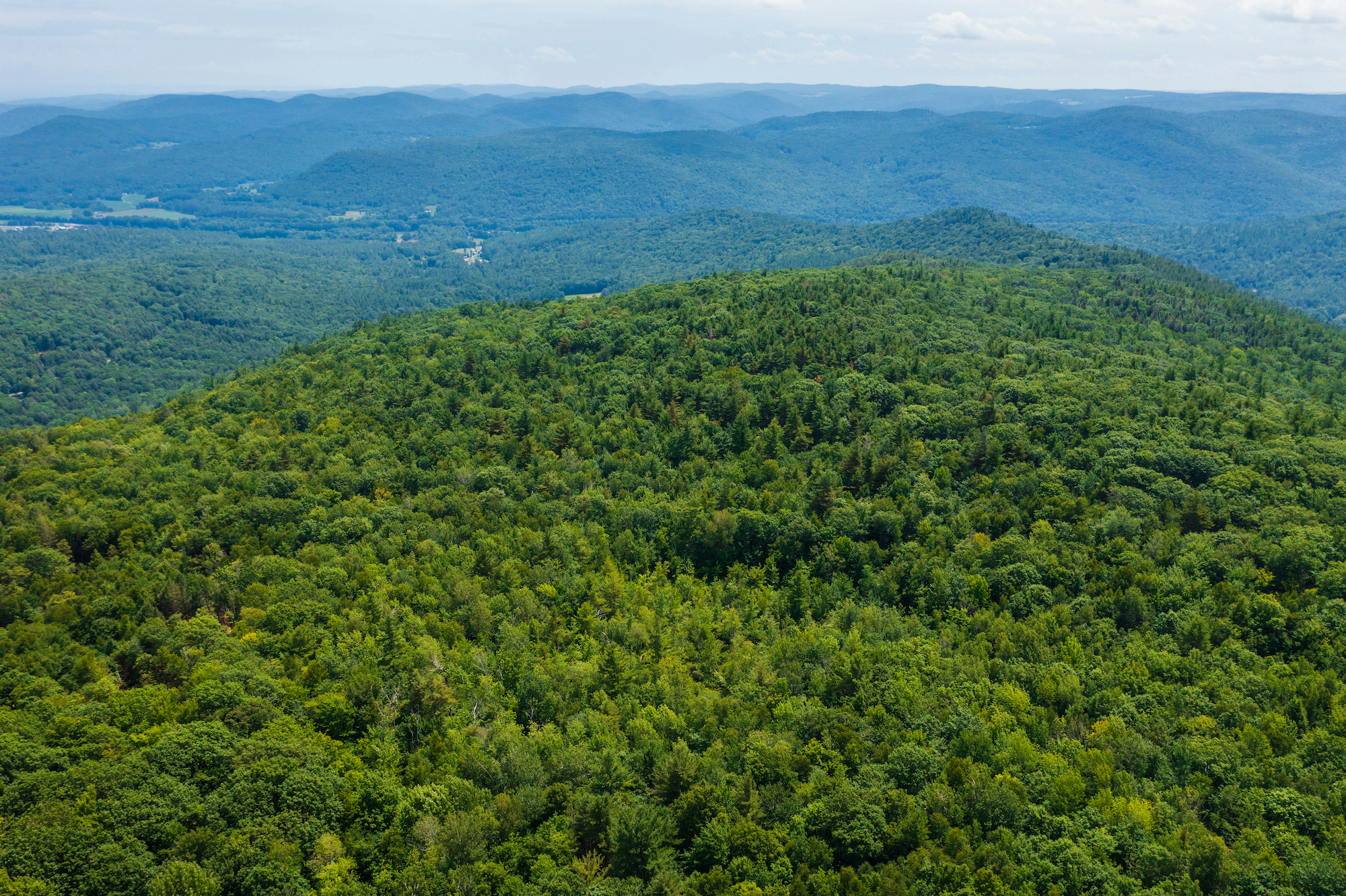
June 2024
Funding Appalachians-Scale Protection
This spring, The Nature Conservancy announced $1.2 million in awards for the first round of the Connectivity, Climate and Communities Fund (CCCF), a program established to provide funding opportunities for conservation efforts in the Appalachians.
The program, which is part of the Resilient and Connected Appalachians Grant program, will fund 27 projects totaling more than 10,000 acres across New Jersey, New York, Connecticut, Massachusetts, Vermont, New Hampshire and Maine. In Massachusetts, four partner organizations were awarded $196,000, which will help protect 900 acres in the state. The organizations include the Berkshire Natural Resources Council, Franklin Land Trust, Kestrel Land Trust and Mass Audubon.
In addition to connecting a network of lands and waters in the Appalachians, in support of the people, plants and animals that inhabit those regions, the program will help to ensure healthy forests that can store significant amounts of carbon.
The Appalachians touch down in Massachusetts for an expanse of over 90 miles from Mouth Greylock in the northwest to Mount Everett in the southwest region of the state.

May 2024
Celebrating the High Street Dam Removal
Last fall’s removal of the High Street Dam in Bridgewater, Massachusetts, opened up 10 miles of river habitat, mitigated flood risk and improved the water quality of the Town River. And while the dam took just a few short days to dismantle—in coordination with the Town of Bridgewater, and with the support of many local and federal partners—the project was many years in the making.
In May, over 70 partners, community members, and dignitaries, including Congressman William Keating (MA-09), Massachusetts Department of Fish and Game Commissioner Tom O’SHea, and Department of the Interior Assistant Secretary for Fish and Wildlife and Parks Shannon Estenoz gathered to celebrate this big step forward, and the collaboration it took to get there. Learn more about the story in this great recap from the U.S. Fish & Wildlife Service.

October 2025
Massachusetts Joins TNC Advocacy Day in Washington, D.C.
In early October, Massachusetts State Director Kris Sarri, Policy Manager Zachary Sheldon and Board of Trustees Chair Don Steinberg—along with Trustees Jim Richardson and Susan Smith—joined hundreds of TNC staff and trustees in Washington, D.C. for TNC’s annual Advocacy Day.
Advocacy Day is a powerful opportunity for TNC leaders to meet face-to-face with members of Congress and their staff to champion bold conservation and climate policies. This year, TNC held more than 200 in-person meetings on Capitol Hill to advocate for funding and policies that protect the air we breathe and water we drink, the public lands where we recreate, the farms and ranches we rely on for healthy food and the policies our country needs to transition to clean energy.
The Massachusetts team met with the offices of Representatives Ayanna Pressley and Lori Trahan, as well as Senators Ed Markey and Elizabeth Warren, to discuss the importance of protecting and increasing federal investments in conservation programs, preserving public lands and advancing nature-based solutions to build resilience and safeguard public health.
Why now? Because many of the federal policies—and the funding that supports them—are at risk. Without strong government action, we cannot meet our ambitious 2030 goals. Advocacy Day is more than just meetings—it’s about building relationships, sharing stories and making progress for people and nature. It’s also a reminder that everyone has a role to play in protecting our planet. Together, we can ensure a healthier, more resilient future for all. Learn more about our policy efforts in Massachusetts and beyond.
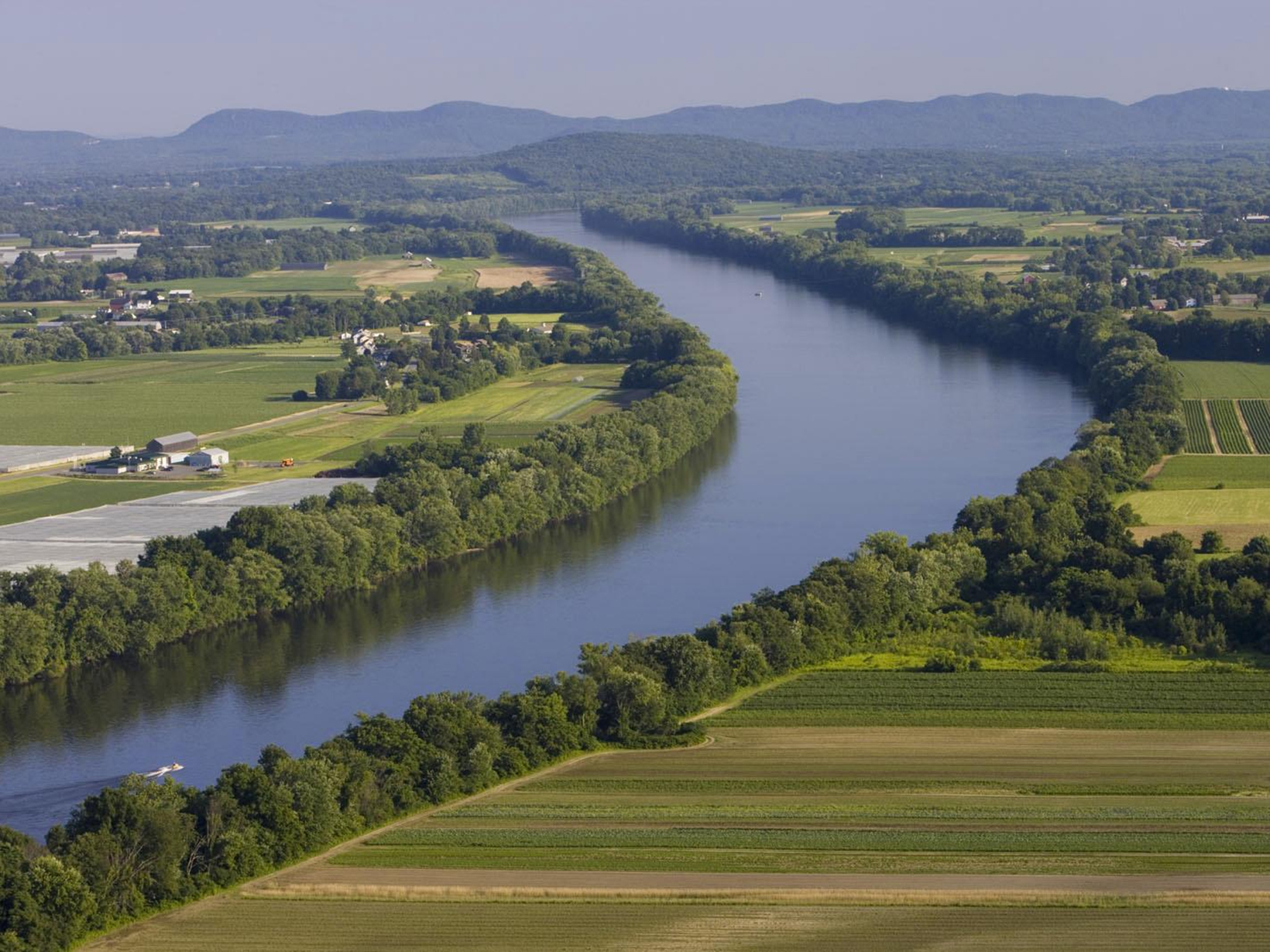
July 2025
Massachusetts Voters Back Climate and Conservation Action
In April, The Nature Conservancy in Massachusetts partnered with the bipartisan research team of FM3 Research and New Bridge Strategy to survey 500 voters in Massachusetts on their views of key environmental and climate change policy priorities. The results were clear: Massachusetts voters overwhelmingly support efforts to conserve wildlife habitat, reduce water pollution and protect 30 percent of the state’s land and waters by 2030. They also back initiatives that ensure equitable access to nature and create new funding sources to address the risks of flooding, drought and extreme heat.
Support for conservation and climate action remained strong even when costs were involved. Sixty-five percent of respondents were willing to pay more in taxes to reduce the risks of flooding, drought and extreme heat. Additionally, 58 percent said they would support a $35 annual contribution—39 percent even said were “very willing.” For more specific polling details, you can take a look at this figure.
We hope that these results showing broad support for bold climate action inspire state leaders to support capital funding in the 2025 Environmental Bond Bill and release the state’s biodiversity goals and plan. Voters are looking to policymakers in Massachusetts to continue to lead the way.
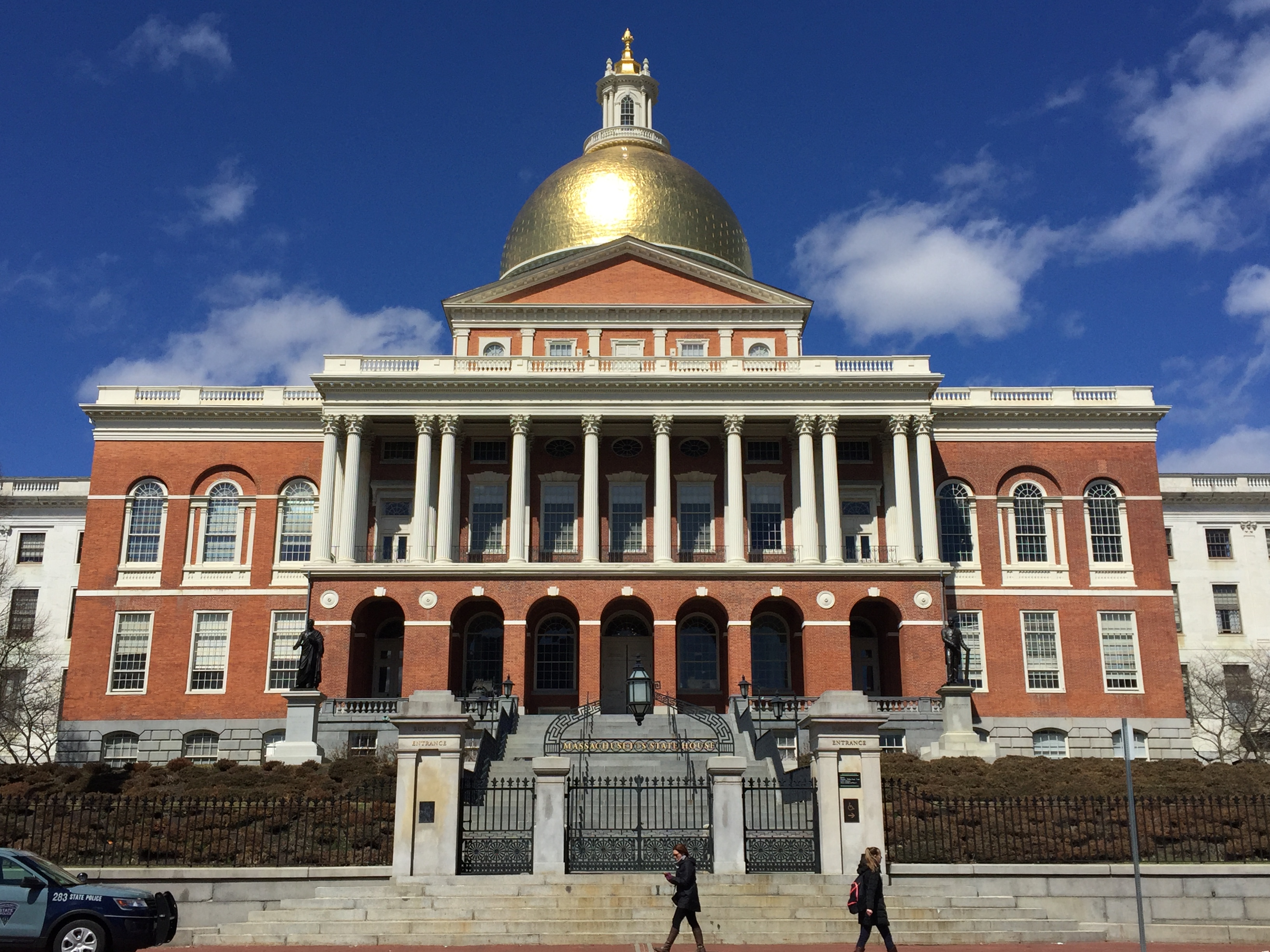
November 2024
Massachusetts Passes Landmark Energy and Climate Legislation
We are celebrating the passage and signing of a new energy and climate bill in Massachusetts! The Commonwealth of Massachusetts’ goal of reaching net zero emissions by 2050—toward which TNC in Massachusetts is also working—will require continued shifts away from business as usual, like transitioning away from fossil fuels.
Last year, Governor Healey established the Massachusetts Commission on Energy Infrastructure Siting and Permitting and charged it with developing recommendations to make the siting and permitting process more efficient and equitable for renewable energy infrastructure. The Governor appointed representatives of diverse sectors along with our own Steve Long, director of policy and partnerships.
We made sure that the recommendations provided better outcomes for people and nature by requiring science-based site suitability assessment and robust community engagement to incorporate people’s lived experiences into determinations about the location, design, and operation of energy infrastructure. TNC ensured that site suitability includes forest carbon, biodiversity, resilience and environmental justice – and a sequential analysis and hierarchy to avoid, minimize, and mitigate impacts.
The Commission, administration and the legislature collaborated on drafting legislation which successfully passed through the House and Senate and was recently signed by Governor Healey. Together, we are taking significant steps toward a cleaner, more equitable energy future.

October 2024
Gathering with TNC North America Policy Colleagues
Our Massachusetts Policy & Partnerships Team spent a week in New Orleans, Louisiana in October at TNC’s North American Policy and Advocacy Conference. Steve Long, Leslie Pond, Emily Myron and Tara Christian joined TNC policy staff from across the continent to share efforts and learn from each other's experiences. Session and workshop topics included model advocacy and projects, centering environmental justice in policy, tips for engaging with decision makers, building capacity, and balancing policy requests in times of great political change.
Steve, Emily and Leslie presented at sessions, sharing examples from our work on more efficient and equitable renewable energy siting and permitting, building strong relationships with our elected leaders, and fostering equitable community-based solutions for climate change policy—well-attended and appreciated sessions that showcase Massachusetts’ valued thought leadership.
The team also had a wonderful time exploring a different (much warmer) state, learning about local longleaf pine restoration efforts, seeing the diverse ways TNC policy staff engage with their regions, and strengthening connections with colleagues. It was especially great to have in-person time with the other folks from the Northeast states and to get to know colleagues beyond Zoom screens. We are grateful to the North America Policy team for organizing this experience and look forward to more opportunities like it in the future!
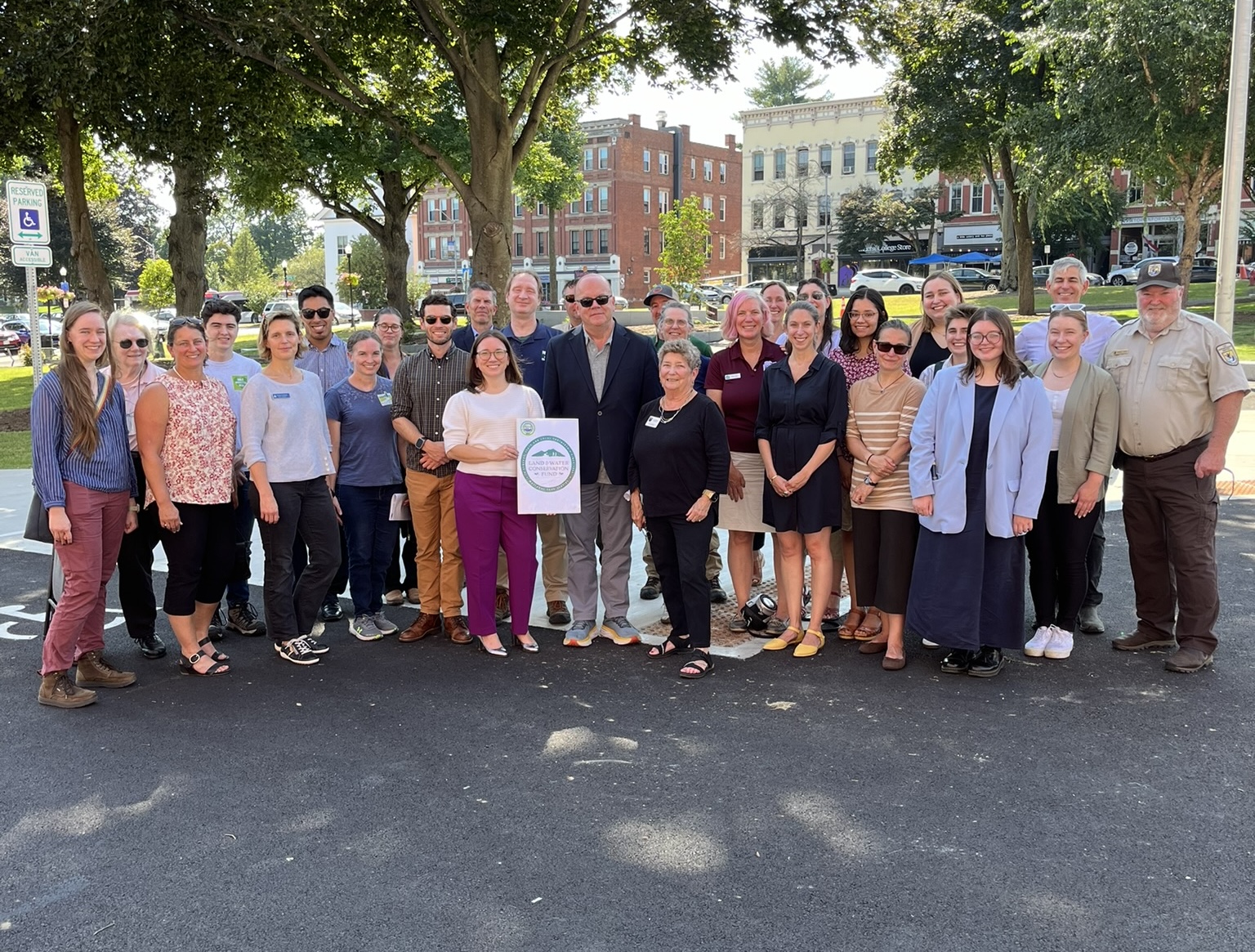
September 2024
Celebrating 60 Years of Funding for Conservation
On Thursday, September 5, The Nature Conservancy joined partners at the recently renovated Amherst Town Common to celebrate the 60th anniversary of the federal Land and Water Conservation Fund (LWCF). Thanks to Congressman Jim McGovern, the Town of Amherst, the U.S. Fish and Wildlife Service, the Commonwealth of Massachusetts, the Appalachian Mountain Club, the Connecticut River Watershed Partnership, and all of our other wonderful partners for coming out to celebrate with us!
Since its establishment in 1964, LWCF has been responsible for preserving some of Massachusetts’ most iconic natural and historic places, like Cape Cod National Seashore, Minute Man National Historical Park and Silvio O. Conte National Fish and Wildlife Refuge; as well as countless state and local parks, trails and playgrounds. Massachusetts has received over $250 million from LWCF over the years, leaving a legacy of public lands for future generations. This funding is critical for uplifting the Commonwealth’s $16 billion outdoor recreation economy and ensuring that everyone has access to these resources.
TNC has been a lead advocate in support of this program for years, helping to ultimately secure its permanent reauthorization in 2019 and full funding at $900 million per year in 2020. We have also worked with partners to bring LWCF funds to the Conte Refuge and to increase the number of applicants to the Stateside LWCF program, particularly from environmental justice communities.
Here’s to many more years of preserving and enhancing our natural treasures.
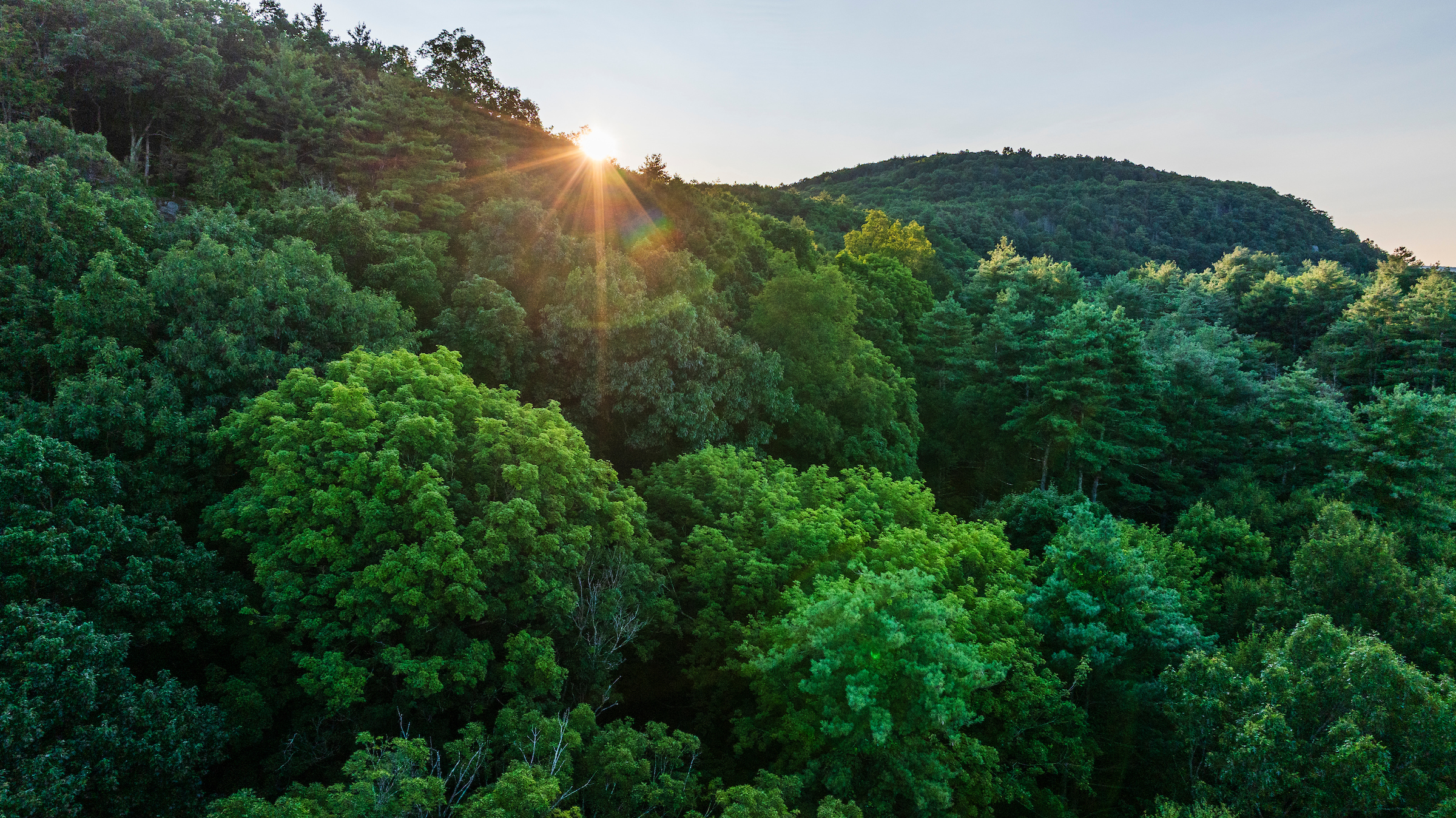
May 2024
Increasing the Cap on Massachusetts’ Conservation Land Tax Credit
Massachusetts’ popular and heavily oversubscribed Conservation Land Tax Credit program, which provides up to $75,000 to landowners if they donate their land to conservation, was recently featured in an article on NPR’s Marketplace. Programs like this are important tools to advance conservation of our natural resources and to meet the state’s climate change goals, as these natural and working lands store and sequester carbon pollution. But with a lengthy waitlist, and only $2 million in annual funding, landowners have found themselves having to wait longer than expected to conserve their properties.
This news piece tells the story of some of the generous landowners stuck on the waitlist, and makes the case for why that is also bad news for the state’s climate goals. Laura Marx, Climate Solutions Scientist for TNC in MA, was quoted in the story: “All of their projections forward kind of fall apart if we don’t have that land base to continue to sequester and store carbon year after year.”
TNC has been leading the effort to increase the cap on the Conservation Land Tax Credit program for years, working alongside over 40 environmental and municipal organizations, bipartisan legislative champions, and the Administration. Unfortunately, despite unanimous support in the House, the FY25 budget conference committee did not include an increase to the annual cap in their final bill.

November 2025
A Vision for Wildlife Connectivity
Interstate 90—known locally as the Mass Pike—is a busy route for people traveling east and west in Massachusetts. But for wildlife in the Appalachian region of Western Massachusetts, the Mass Pike poses a hazard, creating a barrier that limits movement for some species. As traffic volumes rise and species shift their ranges northward in response to a warming climate, these challenges are expected to increase.
The Mass Pike cuts a key regional wildlife corridor, known as the Berkshire Wildlife Linkage, in half from west to east. This area is an important part of a 2,000-mile corridor of wildlife habitat stretching across the Appalachian and Acadian mountains. TNC and Canadian partners work to protect and restore this wildlife corridor through TNC's Appalachian Program.
In July, TNC advanced this vision by purchasing 578 acres in Blandford, Massachusetts. By protecting this land, TNC and our state agency partners from MassWildlife and the Department of Conservation and Recreation have filled a gap in what is now a continuous block of nearly 40,000 acres of conserved land. With this purchase, land is now protected on both sides of the Mass Pike, where there are two medium-sized culverts running underneath the road.
To better understand how wildlife uses these crossings, the Massachusetts Department of Transportation (MassDOT) recently partnered with TNC to install trail cameras at the property. Cameras were placed at the inlets and outlets of two culverts beneath the Mass Pike, and at a third culvert just off the property.
After just two months, the camera captured a coyote crossing under four lanes of traffic through one of the culverts. To help process the hundreds of images generated by each camera, we’re using Animl, TNC’s machine-learning tool. Animl scans every photo, detects whether an animal is present and attempts to classify the species. In this case, it correctly identified a coyote.
While it’s exciting to see a coyote successfully make it through one of these culverts, it’s not a success story yet. Crossing under a major highway through a long, dark tunnel is a stressful and potentially dangerous experience for wildlife.
“As the seasons change, we’re excited to see what a full year of data reveals about wildlife movement and how we can improve connectivity across this critical corridor,” says Laura Marx, climate solutions scientist for TNC in Massachusetts.
TNC plans to transfer the lands to the Massachusetts Department of Conservation and Recreation to expand the Chester-Blandford State Forest and to the Department of Fish and Game to become one of its Wildlife Management Areas. Even after this transfer, TNC and MassDOT will continue to work together to assess wildlife connectivity opportunities at the site.
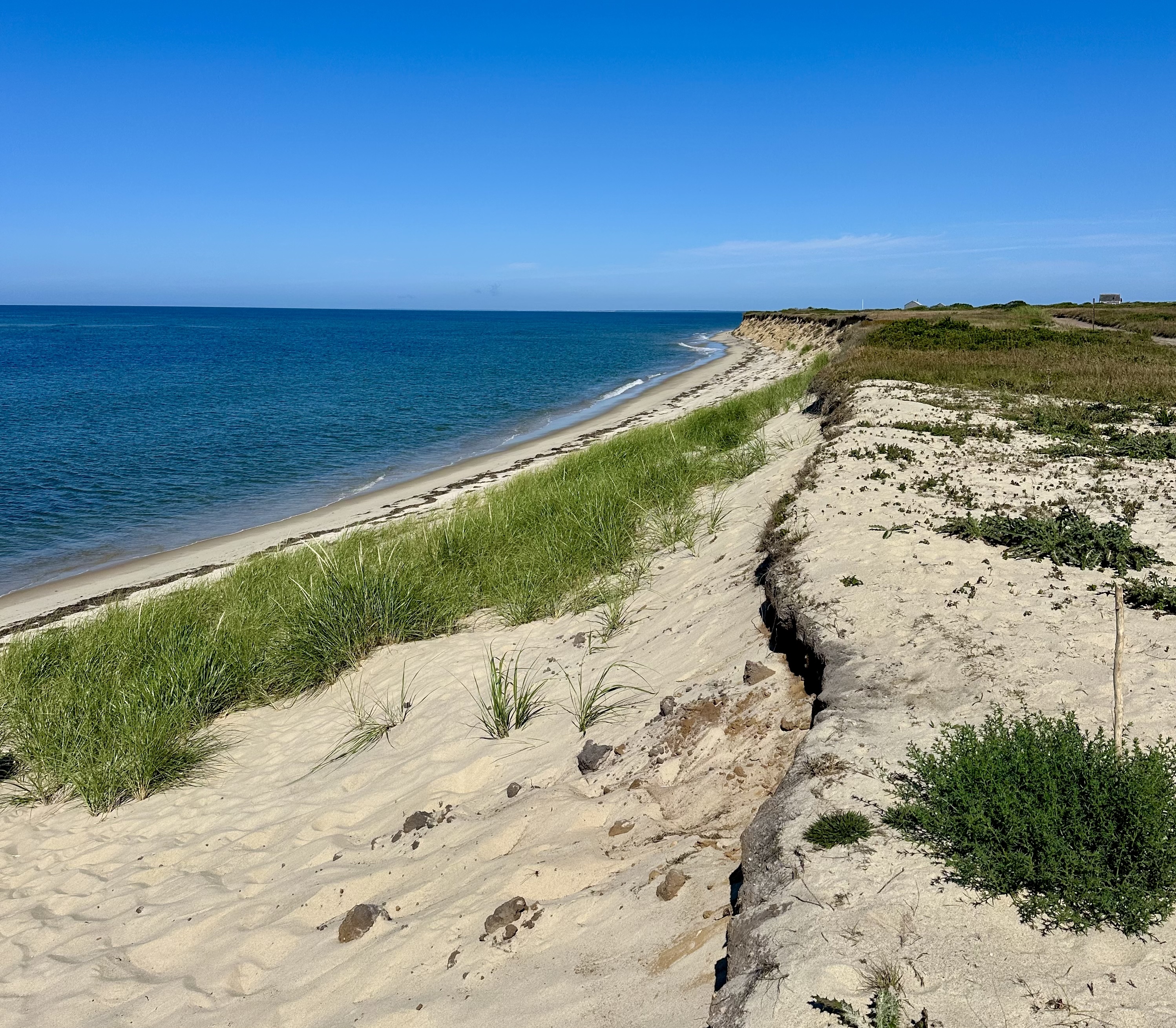
August 2025
Annual Monitoring on Tuckernuck Island
TNC manages and restores several properties across Cape Cod and the Islands that are some of the last-remaining parcels of unique ecosystems, like sandplain grasslands. Unfortunately, climate change is putting pressure on these special places.
In August, TNC's Chris McGuire, Dan Goulart and Rebekah Myers embarked on an annual monitoring trip to Tuckernuck Island, just off the southwest coast of Nantucket. Monitoring land that we steward is an important activity to keep track of any changes on a property, check boundaries and ensure the integrity of their value to conservation.
The team was welcomed by the island’s vibrant wildlife—flocks of seabirds soared overhead and a curious seal surfaced nearby. The shoreline shimmered with crystal-clear water meeting soft, untouched sand. In the thickets, birds flittered through the brush, a reminder of the island’s rich biodiversity.
Once ashore, the team conducted monitoring across key areas of the property and checked in with local landowners. While monitoring focuses on erosion and the loss of rare coastal grassland habitat, this year’s visit underscored the impermanence of coastal systems. Researchers at Woods Hole Oceanographic Institute estimated a 42-foot per year erosion rate average from 1995 to 2012. This summer we observed a far lower erosion rate, with some surprising twists. Interestingly, a lagoon open to the ocean since the 1970s had completely closed off with sand, cutting off access to our usual docking area.
Despite the variability of erosion from year to year, more frequent storms, sea level rise and other impacts from climate change pose a greater risk for sudden, large-scale loss of coastline. Monitoring on this island serves as a reminder of TNC’s important work building resilience and reducing emissions.
From the end of a road that had been cut short by coastal erosion in the past year, our team looked across the ocean to the Vineyard Wind farm, an important technology for meeting our energy needs while reducing carbon pollution for a healthier planet where people and nature can thrive.
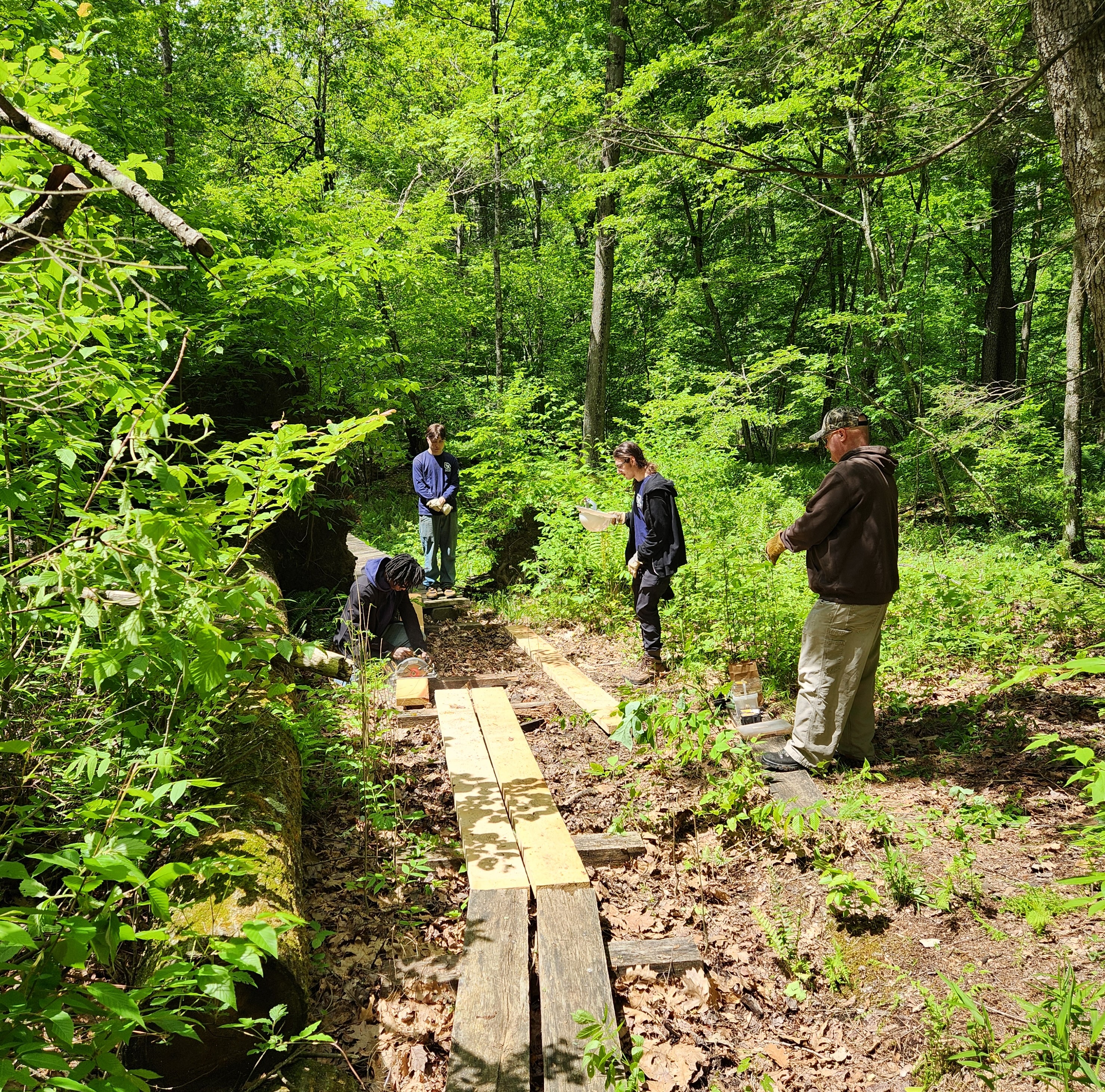
May 2025
Volunteers in Action at Drury Preserve
In May, we had the pleasure of welcoming an incredible team from the Student Conservation Association (SCA) Massachusetts Conservation Corps to our Drury Preserve in Sheffield, Massachusetts. They worked together to build and repair several bridges along the trail—efforts that will ensure safer, more enjoyable access to nature for visitors.
Drury Preserve, nestled in the southern Berkshires, is a gem of ecological diversity. It protects a rich array of lowland forest and plant communities, and rewards hikers with a gorgeous view of Mount Race across Schenob Brook at the end of its trail. Established in 1997, the preserve honors the generous 1984 donation of 65 acres by Roger and Virginia Drury.
The Preserve is part of the Schenob Brook wetland complex, with ecologically significant wetlands that support a variety of rare and regionally important species. Over the last few decades, we’ve expanded protection in the area by over 2,500 acres, including key upland areas that safeguard the water sources feeding these vital wetlands.
We’re always thrilled to host SCA volunteers at our preserves. Their passion for conservation and community service is inspiring, and it’s especially meaningful to TNC since several Massachusetts staff members began their conservation careers with national service and volunteerism. It’s a full-circle moment that highlights the lasting impact of early conservation experiences. Their work not only enhances the visitor experience but also strengthens the legacy of stewardship that defines Drury Preserve.
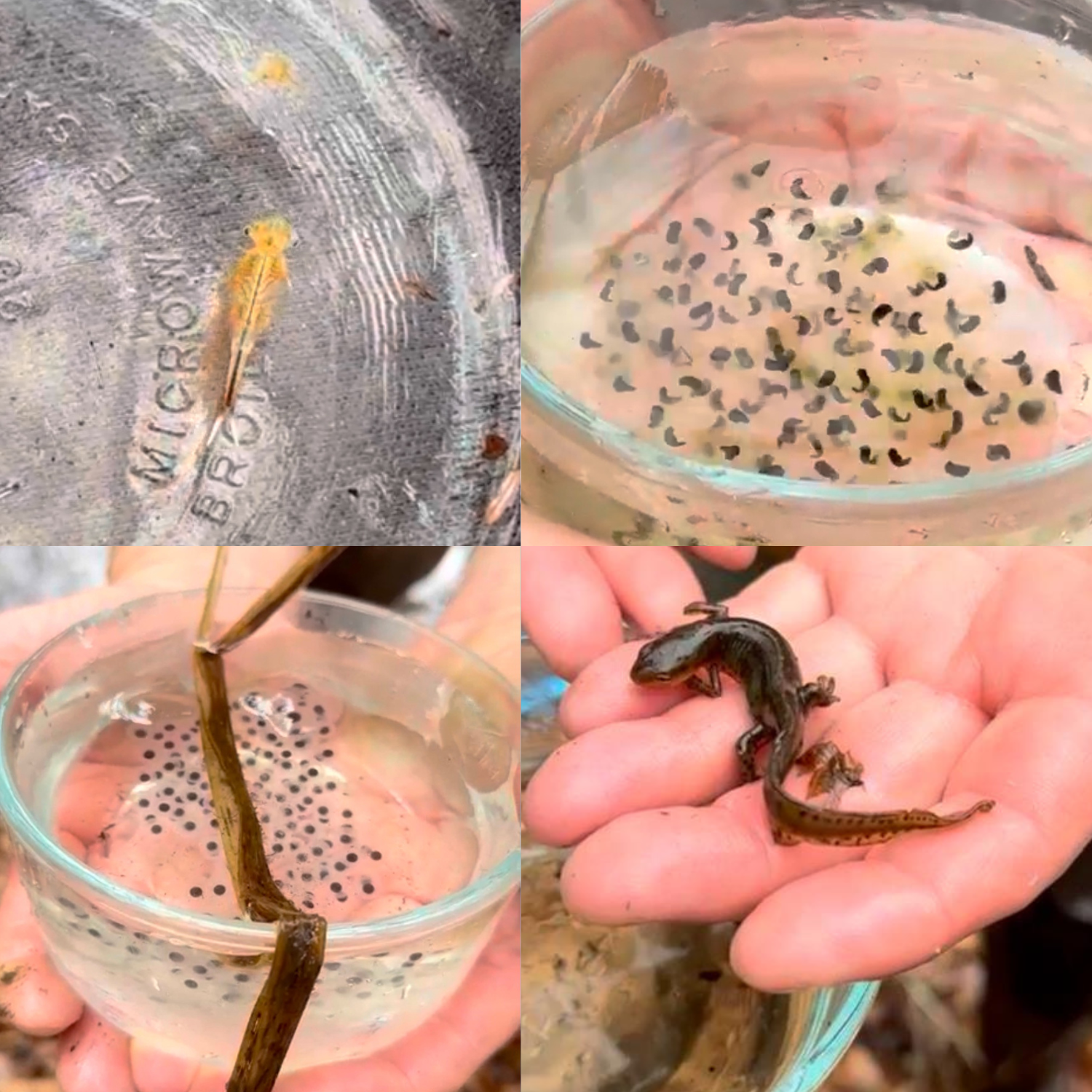
May 2025
Exploring Vernal Pools in Western Massachusetts
On a beautiful spring day in Western Massachusetts, TNC staff set out to explore the life beneath the surface of a few vernal pools at our Stacy Mountain Preserve in Gill. These seasonal wetlands, which fill with rainwater and snowmelt in the late fall, winter and spring, and dry out in the summer, are crucial to the ecosystem. Their ephemeral nature keeps them free of fish, making them vital breeding grounds where globally rare woodland species can breed without predators.
During the exploration, we spotted fairy shrimp, tiny creatures reminiscent of sea monkeys, which only last a few months before laying eggs in the leaf litter. Later, we found wood frog egg masses close to becoming tadpoles. Wood frogs spend the winter under the leaf litter, almost completely frozen, protecting just their vital organs until it is time to breed, then lay eggs by the thousands. Both wood frogs and spotted salamanders are obligate vernal pool inhabitants, meaning they exclusively breed in these seasonal wetlands, and their life cycles are synchronized with the annual cycles of the pool. Once these creatures grow their terrestrial limbs, they will disappear into the forest and become a crucial part of the surrounding ecosystem.
Vernal pools can be certified and added to a state database if they meet specific criteria, including the presence of fairy shrimp or a certain number of egg masses. Once certified, these pools, like those at Stacy Mountain Preserve, are protected and can never be filled in or destroyed. Protecting them is essential to ensure the survival of the unique species that depend on them. When we protect vernal pools, we are not only protecting the wood frogs, fairy shrimp and spotted salamanders, we are also safeguarding the biodiversity of the forest.
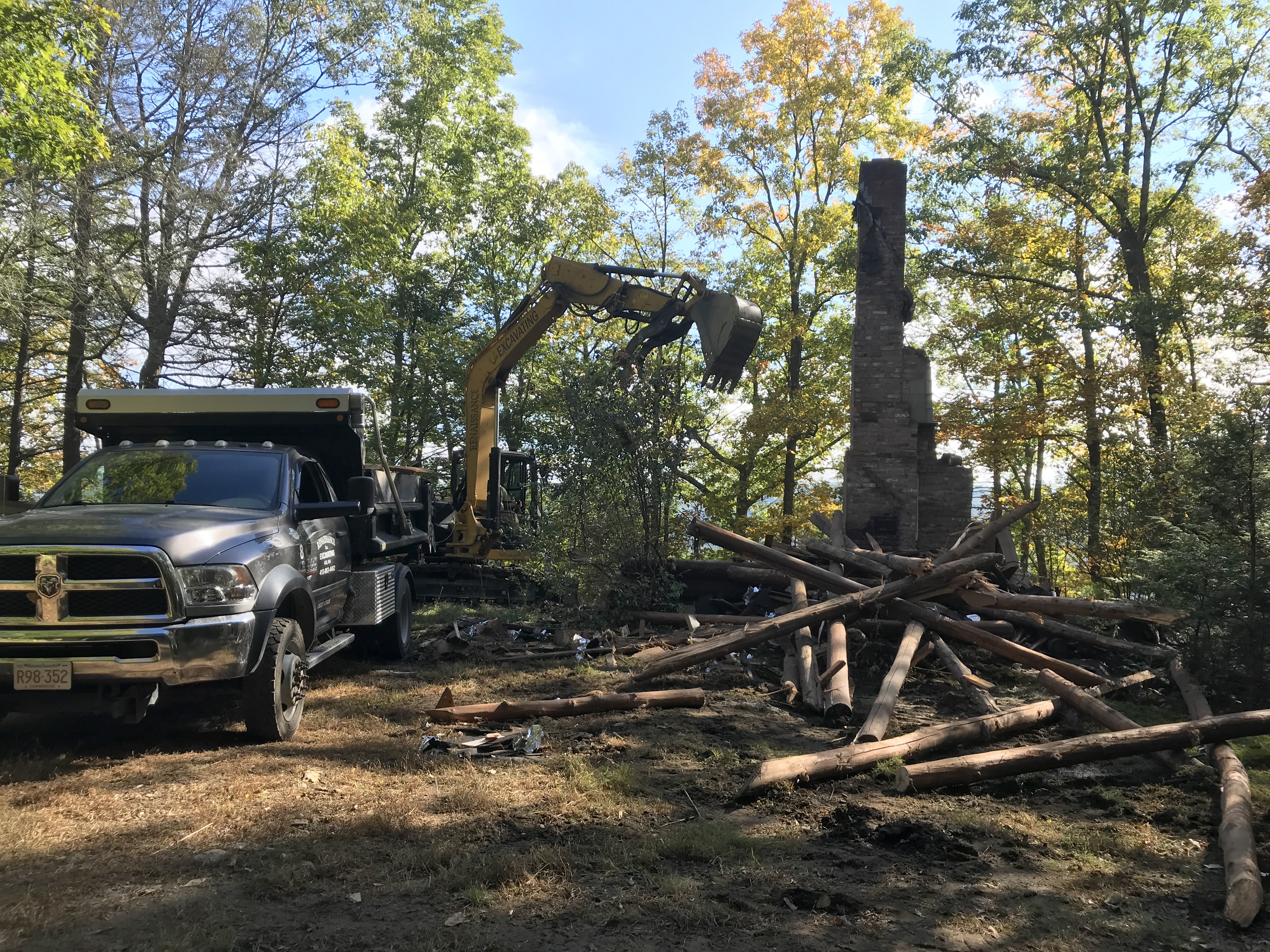
October 2024
Protecting the Summit of Stacy Mountain
As you drive west on Route 2 across the iconic French King Gorge Bridge in Gill, Massachusetts, a small mountain is visible on the left side of the gorge. This is TNC’s 155-acre Stacy Mountain Preserve, which rises from the Connecticut River to 550 feet at the top of Stacy Mountain. TNC has owned most of the land around the mountain since the late 90s—a special place overlooking the Connecticut River, with diverse terrain that includes ledges, rich mesic forests and vernal pools. It’s also home to many rare species.
Recently, TNC was able to protect one of the last two inholdings within the preserve, a two-acre tract at the top of the mountain. It had been owned by the Plante family, who sold us their surrounding property back in 1996 for protection. The tract includes a small cabin that the family built in the 1960s and had wanted to hold onto. Over the years the cabin fell into disrepair and became subject to vandalism. In September, with the help of a local company, Renaissance Builders, TNC was able to remove the cabin and rewild the mountain summit.
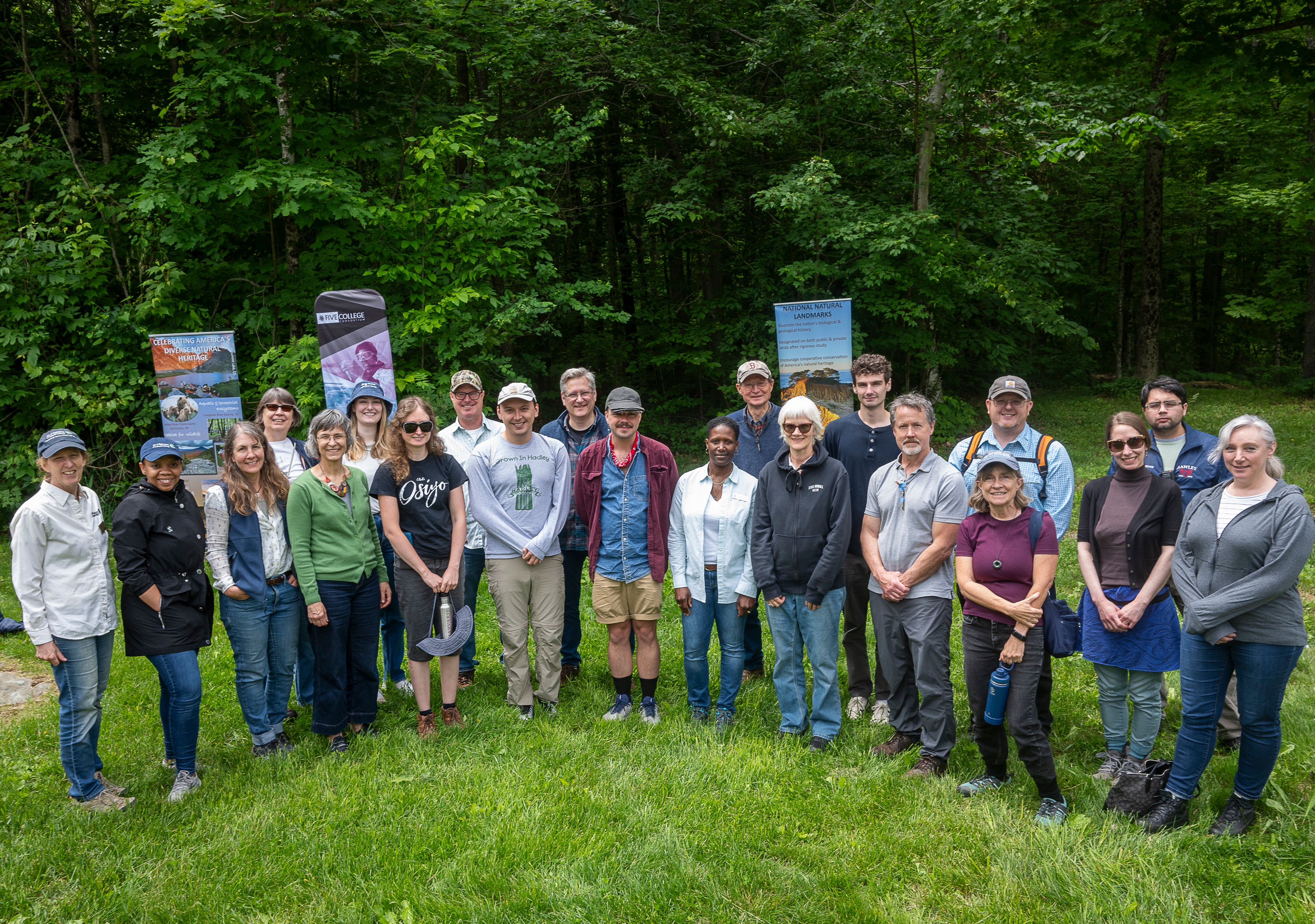
May 2024
Celebrating 50 Years of Hawley Bog as a National Natural Landmark
In 1974, the National Park Service declared Hawley Bog—one of TNC in Massachusetts’ preserves and a beautiful example of a southern New England level bog—a National Natural Landmark. In June, TNC and the Five Colleges Consortium, who co-own the land, celebrated the 50th anniversary of the designation with a gathering and walk through the bog. Community members, staff and supporters from both organizations, plus staff of a local lawmaker attended to celebrate this unique ecosystem that supports rare plants and animals, as well as serves as an easily accessible green space and outdoor classroom for exploration and research.
Plan your visit to Hawley Bog preserve today to see it for yourself!
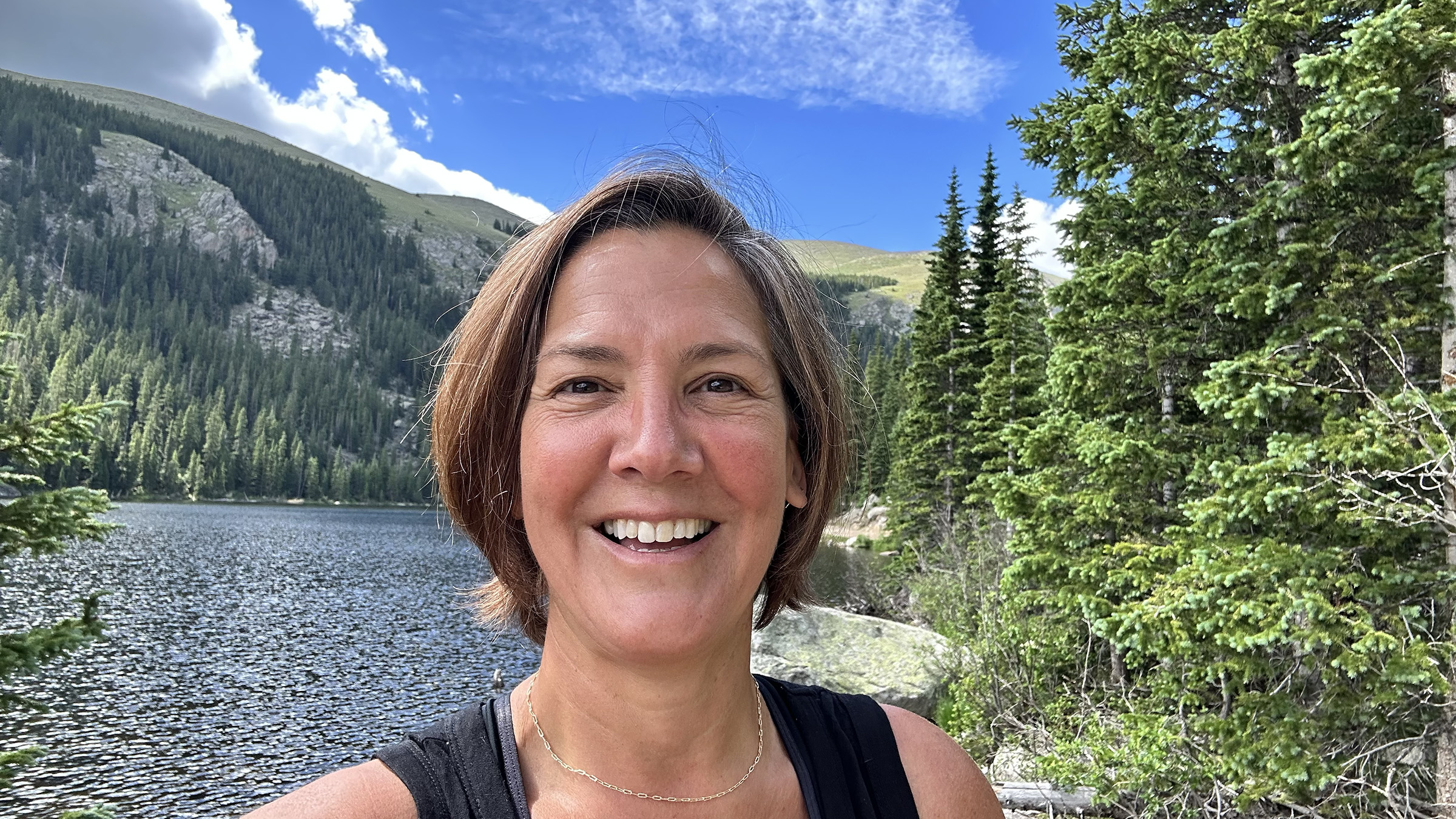
Kris Sarri Joins TNC
The Nature Conservancy in Massachusetts is thrilled to welcome Kris Sarri as State Director starting July 28. With 30 years of experience in environmental advocacy and public service, she brings unmatched expertise and a passion for improving the livelihoods of communities and protecting nature.
Sarri most recently served as USAID’s Acting Chief Climate Officer and Senior Advisor for Climate and Environment and was nominated by President Biden for Assistant Secretary of State for Oceans and International Environmental and Scientific Affairs. Previously, she served as President and CEO of the National Marine Sanctuary Foundation, transforming it into a leading voice for ocean protection.
Her career also includes leadership roles across federal agencies and eight years shaping environmental policy in the U.S. Senate. Originally from Ann Arbor, Michigan, Sarri holds degrees in biology, natural resources and public health and is an avid SCUBA diver.
She and her husband—along with their rescue cats and dogs—are excited to make Boston home.

Stewardship Insights from TNC’s Staff Enrichment Week
This summer, Stewardship Manager Rebekah Myers attended The Nature Conservancy’s annual Staff Enrichment Week, held at the Arbor Day Foundation’s Lied Lodge in Nebraska. Rebekah joined over 150 colleagues from around the world to exchange ideas, share conservation strategies and deepen cross-regional collaboration.
The week’s session topics covered fire and prairie management, Indigenous rights, policy wins and aligning local efforts with TNC’s 2030 goals. Highlights included presentations on science-based stewardship efforts and building strong community partnerships to enhance ecosystem resilience. McRee Anderson, fire restoration program manager in Arkansas, shared insights on prescribed burns across North America and Zambia, while Belize Program Director Hanna St. Luce Martinez and Indiana Donor Relations Manager Brian Dickerson discussed how philanthropy supports biodiversity and sustainable community development abroad.
Rebekah also connected with Nebraska staff, arriving early to tour the Platte River Prairies with Chris Helzer, TNC in Nebraska’s director of science and stewardship. She learned about their work managing the 56,000-acre Niobrara Valley Preserve, where bison grazing and prescribed fire are key management tools.
These experiences resonated with Rebekah, who manages approximately 500 acres of globally rare sandplain grasslands on Martha’s Vineyard. While the scale differs, the ecological goals are similar. Rebekah returned to Massachusetts with fresh ideas and pride in being part of a global organization making a tangible impact for people and nature.
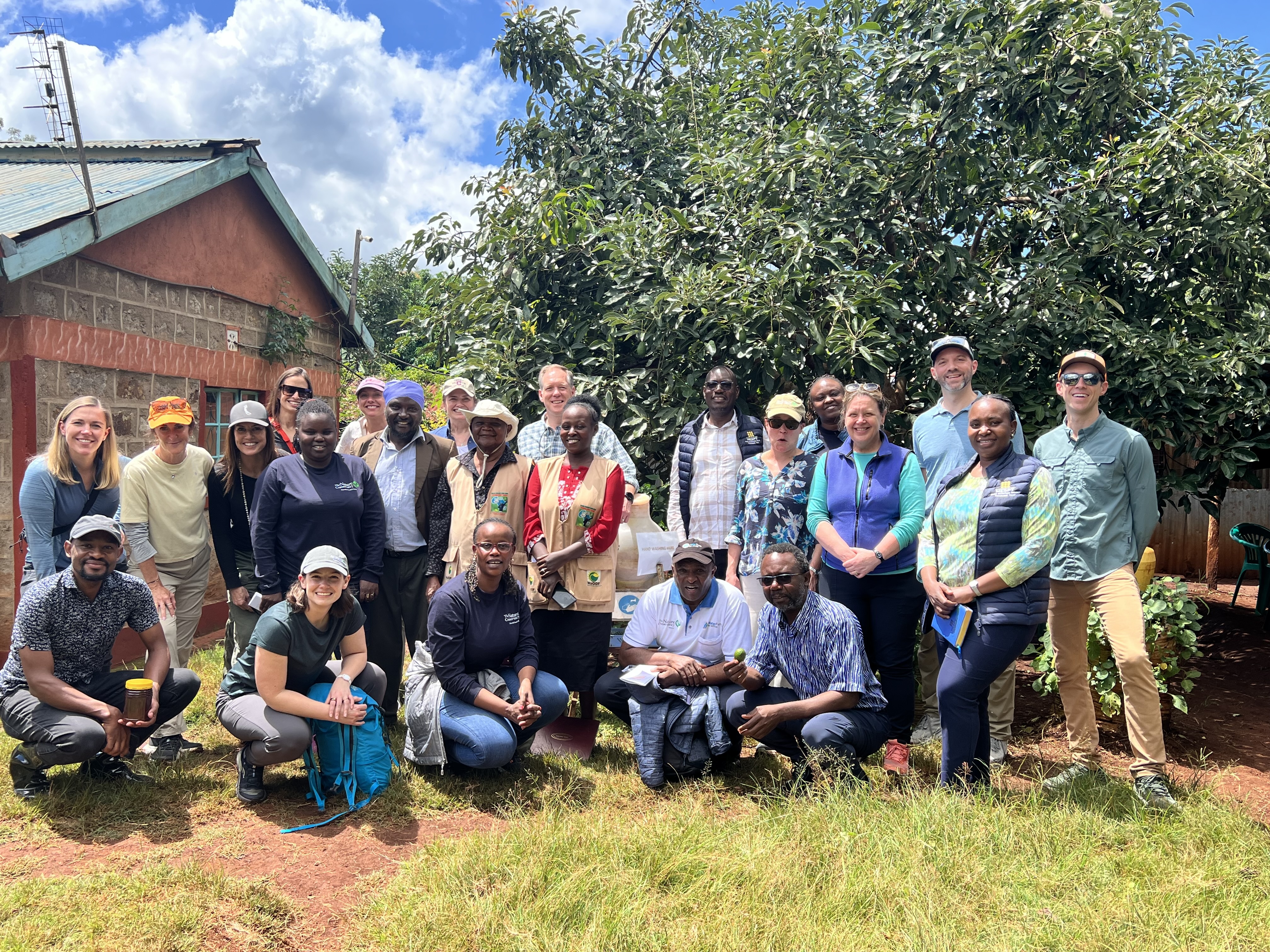
June 2025
Lessons from Kenya on Lasting Conservation
Massachusetts Director of Development Steve Fulmer shares reflections from a recent trip to Kenya with The Nature Conservancy—an experience that brought the power of people-centered conservation into focus.
“The inspiring journey through Kenya’s central highlands and northern plains was a vivid reminder of what systems change looks like at a landscape scale—and how deeply it depends on people, partnerships and long-term commitment.
In every community we visited, from the fertile foothills beneath Mount Kenya to the vast, arid rangelands to the north, we saw communities and partners tackling complex conservation challenges with creativity and resolve.
Conservation efforts that don’t benefit communities simply won’t endure—especially in Kenya, where nature and wildlife are not only ecological treasures but also powerful economic engines. On a visit to a small farm, “Mr. Organic” shared the story of his demonstration farm, which amplifies the use of restorative agriculture practices. Conserving water and soil; incorporating cover crops like mango, banana and macadamia; and using homemade organic compost increases food yields and boosts family income.
Rose Kimanzi, projects and HR manager for Communities Health Africa Trust (CHAT), shared vivid examples of the connection between people, their health and the natural resources on which they depend. The work of CHAT, along with other partners addressing human and wildlife conflict, education, security and economic development is driving meaningful, lasting change.
TNC’s role in these landscapes is clear: we bring unique skills and expertise that complement and strengthen local efforts. Our theory of change focuses on where we can add the most value—whether that’s supporting science-based land management, driving investment in small-scale economic development or building coalitions for long-term impact. These are just some of the essential ingredients for sustainable livelihoods and resilient communities.
While I was awed by the amazing landscapes and majestic wildlife, it was “Mr. Organic” and Rose who left the truly indelible mark for me. Whether in Kenya, Mongolia or here at home in Massachusetts, the bedrock of our future achievements remains the same: people, partners, creativity, dedication and passion.”
–Steve Fulmer
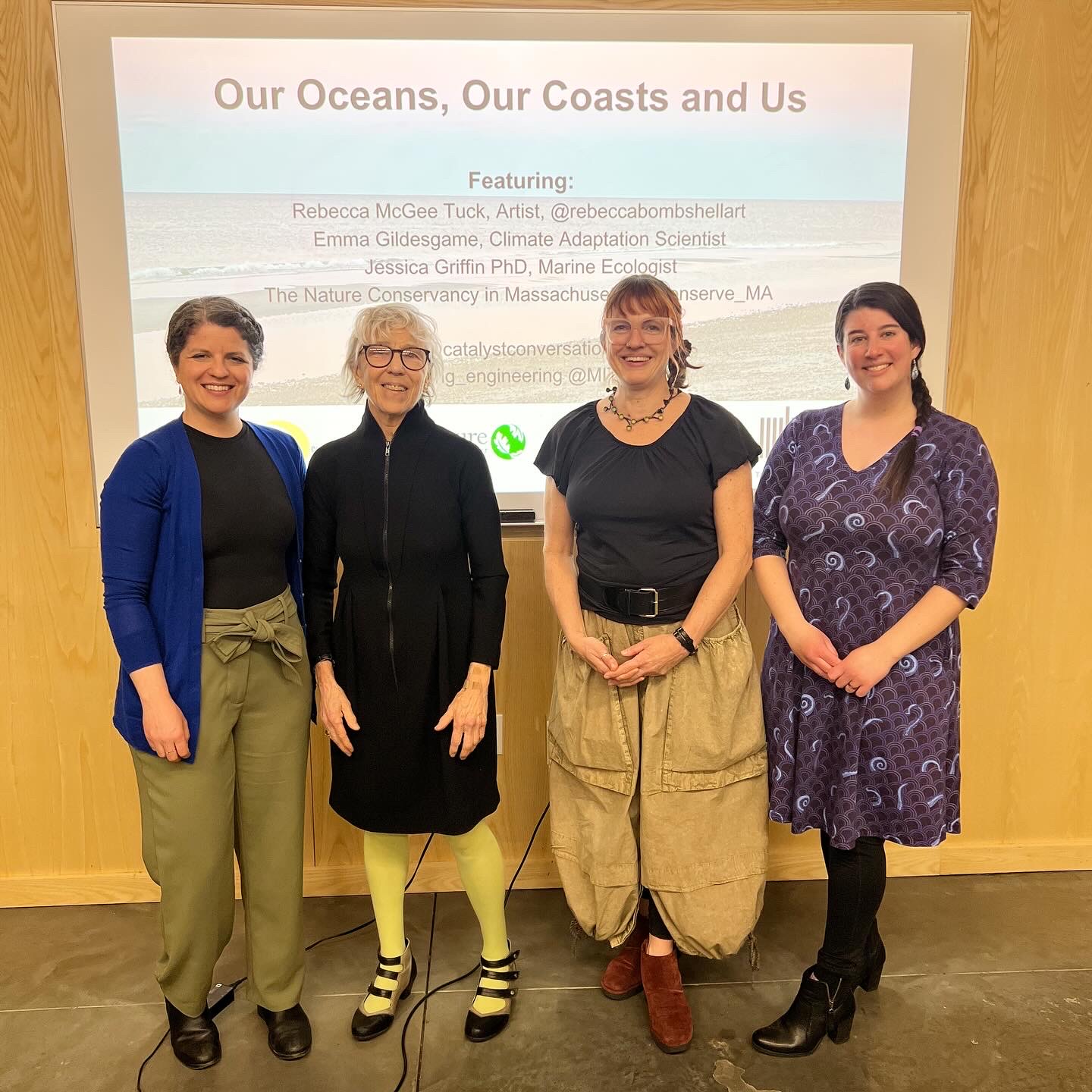
March 2025
Science, Art and Community Solutions for a Resilient Future
In a March presentation of Catalyst Conversations, “Our Ocean, Our Coasts and Us,” Climate Adaptation Scientist Emma Gildesgame, marine ecologist Jessica Griffin and artist Rebecca McGee Tuck shared their expertise on coastal relocation, eelgrass and ocean debris while discussing positive solutions for the environment.
TNC’s Emma Gildesgame emphasized the need to reimagine our relationship with the coast to ensure safety and restore nature as climate impacts like sea level rise and flooding touch down. In her work, Emma uses science, compassion and creativity to collaborate with peers in building a resilient coastal future. She underscored the importance of community collaboration in addressing challenges, highlighting the need for shared visualization and discussion to find solutions and create a better future for all, including proactive planning and restoration efforts.
Jessica Griffin took the audience out of the coastal floodplain and into the ocean, sharing her work on eelgrass and oyster aquaculture. Eelgrass, a species of seagrass found worldwide, serves as a nursery habitat for invertebrates and supports various shellfish, but is unfortunately declining. Some of Jessica’s research explores the relationship between oyster aquaculture and eelgrass, to gain an understanding of how the proximity of eelgrass to oyster farms impacts oysters. The goal is to inform management practices that ensure mutual benefits for both eelgrass and oyster aquaculture. This is a crucial time to protect and study coastal ecosystems and economies, and Jessica's work highlights the importance of innovative solutions and collaborative efforts.
Lastly, Rebecca McGee Tuck shared her art practice, exploring the intersection of humans and nature by collecting debris along the Massachusetts coastline. Each piece she creates serves as a poignant reminder of our impact on ocean and coastal ecosystems. Rebecca's work highlights the importance of artistic expression and community in raising awareness about environmental issues.
We’re grateful to have partnered with Catalyst Conversations,which creates programs that pair artists and scientists for intimate conversations. Check out the full recording to watch the presentations and discussions.
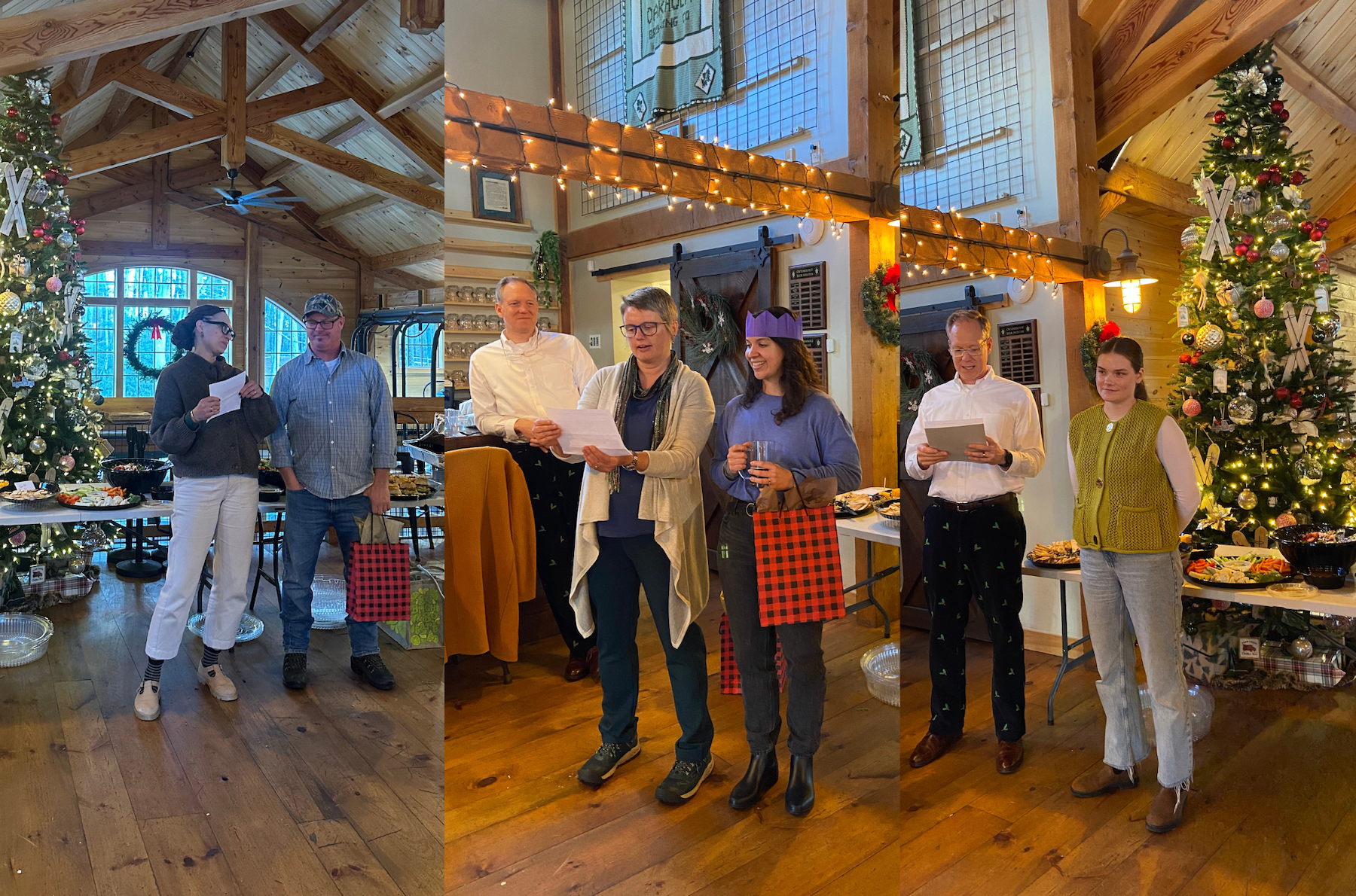
January 2025
Congratulations to Our 2024 Golden Oak Awardees
At the end of each year, TNC in Massachusetts gives out awards to a few staff who have made important contributions to our work, in the state and beyond. We’re excited to share the 2024 recipients of the Golden Oak Awards!
INNOVATION AWARD: Alex Verdeja Perez, Conservation Finance Coordinator | She’s been with TNC for less than a year, but has been a proactive, supportive and self-driven innovator. Her inventive ideas, solutions and tools have significantly enhanced the effectiveness of the conservation and operations teams in Massachusetts, in just a short time.
KEYSTONE AWARD: Rene Wendell, Western Massachusetts Land Steward | Rene has demonstrated all-around excellence in making a positive impact within the chapter. His quick wit, extensive experience, wisdom and entertaining stories make us all smile. He consistently shows his excitement and expertise to help further TNC’s mission. (Watch the recent webinar he did on Drury Preserve!)
ONE CONSERVANCY AWARD: Chloe Tomasetta, Marketing and Communications Coordinator | Chloe has exemplified our “One Conservancy” value in her first year with the organization, making a difference locally and beyond the state. She has contributed creative and innovative ideas, helped bring more organization to team processes, and driven social engagement and brand awareness through our social channels—key to bringing everyone together to work towards a better future.
We’re grateful to all of our staff for the amazing work they put in each year to make our ambitious goals possible.

December 2024
Celebrating and Supporting Our Women Leaders
In December, a number of staff from TNC in Massachusetts, as well as a few colleagues from the Maine and Rhode Island Chapters, attended the 2024 Massachusetts Conference for Women! It was the 20th annual conference, and in addition to serving more than 15,000 attendees through connection, networking, inspiration and skill building, the Conference for Women is also a global community aimed at empowering, inspiring and supporting women.
Our staff had the chance to connect with amazing individuals and learn from the keynotes and speaker-led workshops. Topics included leadership; setting boundaries; financial, physical and mental wellness; allyship; intelligent failure and more. We’re excited to continue these conversations and apply what we’ve learned to our work.
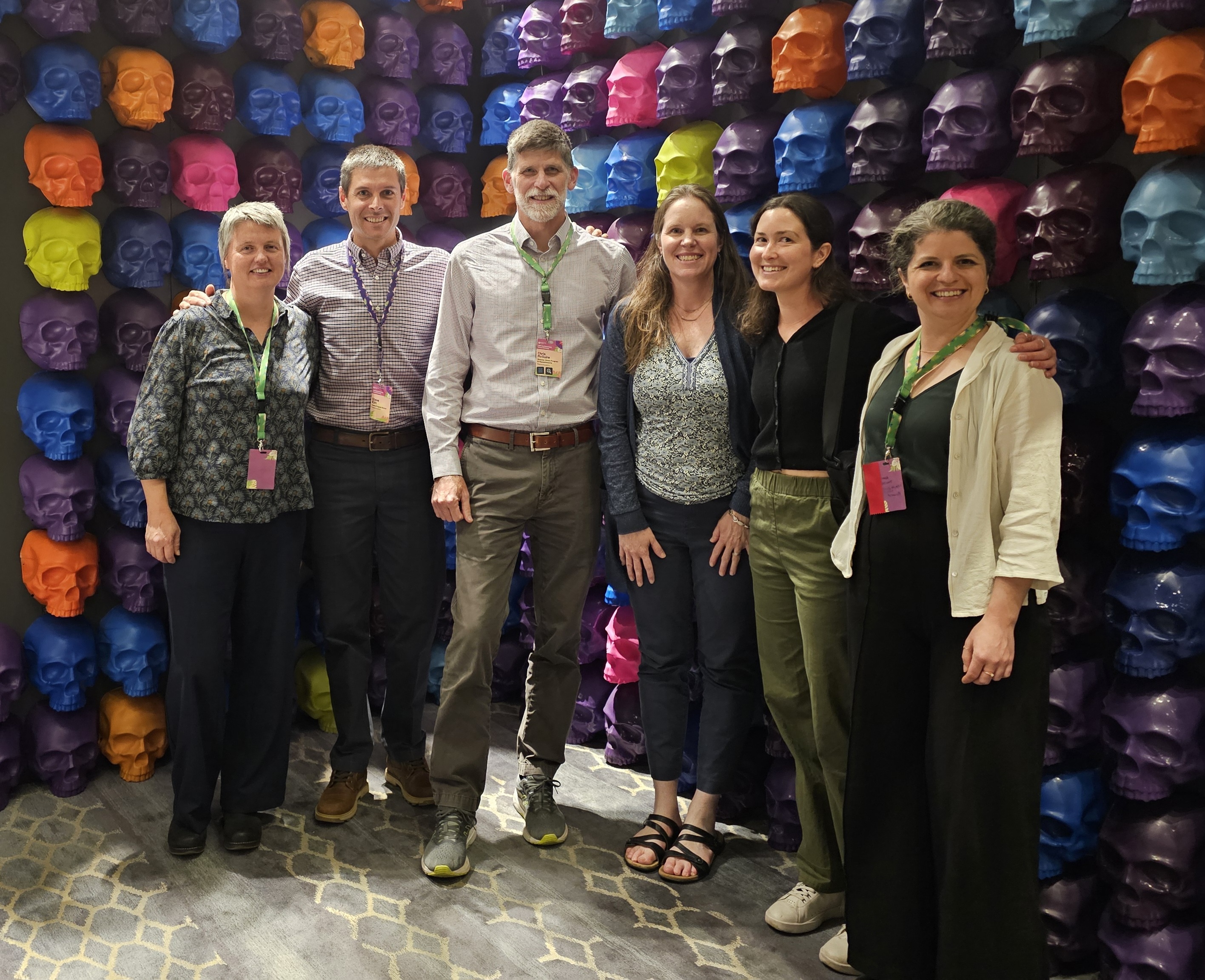
November 2024
One Conservancy Science Gathering
In November, several scientists from TNC in Massachusetts attended a global gathering of science staff from across the organization and beyond in Mexico City. 508 people participated in total, with 464 in-person in and 44 virtually, including over 230 speakers! Participants came from 32 countries and included nearly three dozen different environmental, academic and research institutions.
Director of Conservation and Science Strategy Alison Bowden, Climate Adaptation Scientist Emma Gildesgame, Coastal Program Director Steve Kirk and Ocean Program Director Chris McGuire represented Massachusetts, moderating, presenting, and actively participating in panel discussions and working sessions. Chris co-hosted a working session with TNC’s Conservation Metrics Lead, Giselle Hall, to discuss frameworks for thinking about the role of scale in ecosystem function, titled “Small but Mighty.”
We’re excited to see a growing emphasis on Human Dimensions in science—an area where we collaborate with Northeastern University’s Coastal Sustainability Institute. Northeastern PhD Candidate Katie Sperry joined the team in Mexico to present the results of her social-ecological systems modeling research on restoration experts’ perceptions of leverage points for salt marsh restoration success in New England.
It was an exciting, busy and informative week, filled with numerous conversations with colleagues as well as learning a bit about Mexican culture and food!
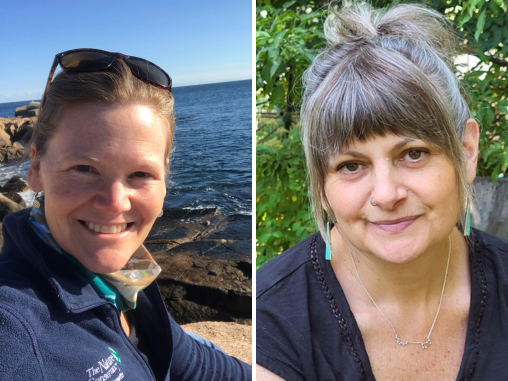
July 2024
TNC's 2024 Trailblazer Awards
The Massachusetts Chapter is thrilled to congratulate two staff members for being recognized for their extraordinary leadership at The Nature Conservancy.
Congratulations to Jessica Rice Healey, senior associate director of development, on her nomination for TNC’s 2024 Trailblazer “One Conservancy” Award, which recognizes an individual who values the strength and vitality that comes from working together as one organization in local places and across borders to achieve our global mission. Jessica contributes to building a strong culture at TNC and inspires others to do the same!
We would also like to congratulate Meg Connerton, director of operations and culture, on her well-deserved nomination for TNC’s 2024 Hidden Gem Trailblazer Award. She also celebrated her 25-year anniversary with TNC this summer! Meg’s hard work, given without any expectation of recognition, is truly extraordinary. We couldn’t do what we do without you, Meg!
There is a saying that TNC folks come for the mission and stay for the people, and Jessica and Meg’s valuable contributions to our chapter are a part of what makes TNC such a special place to work.
Stay up to date on stories like these and more
Sign up for our monthly e-newsletter!
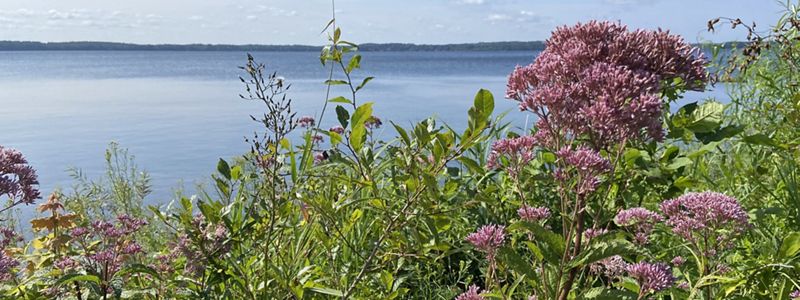
More From Massachusetts
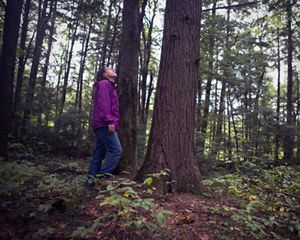
Using Nature to Reduce Carbon Pollution
Forests, wetlands and farms play an important role in tackling climate change by storing large amounts of carbon. Not to mention the other benefits they provide for people and nature.

Diving Deep on Oyster Aquaculture and Restoration
To safeguard the health of coastal environments, TNC is both restoring natural shellfish reefs and working directly with shellfish farmers.
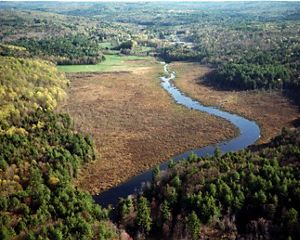
Connecting Lands for Climate Resilience
TNC data shows which landscapes will support plants and animals as the climate changes. We're working to protect them.